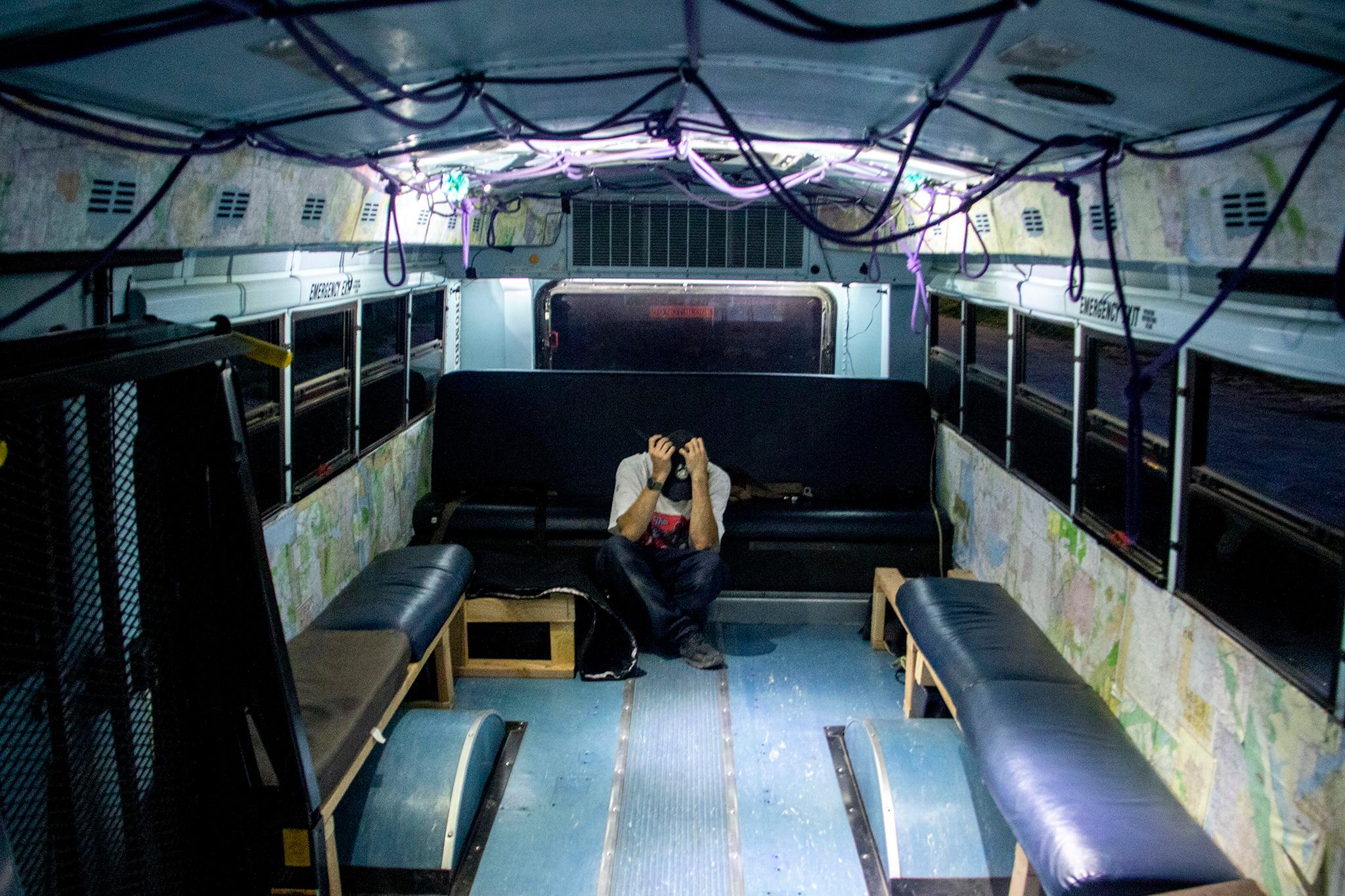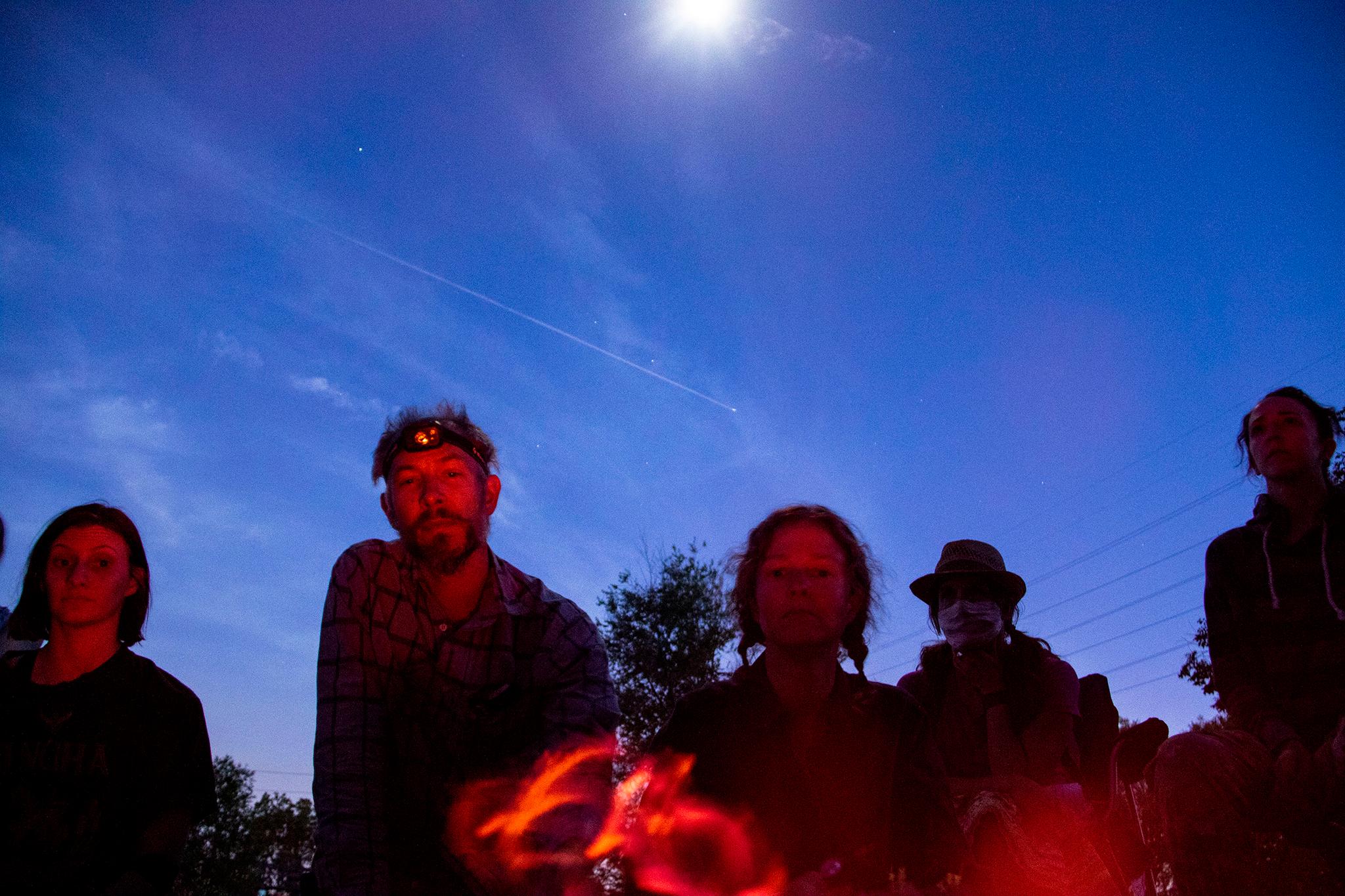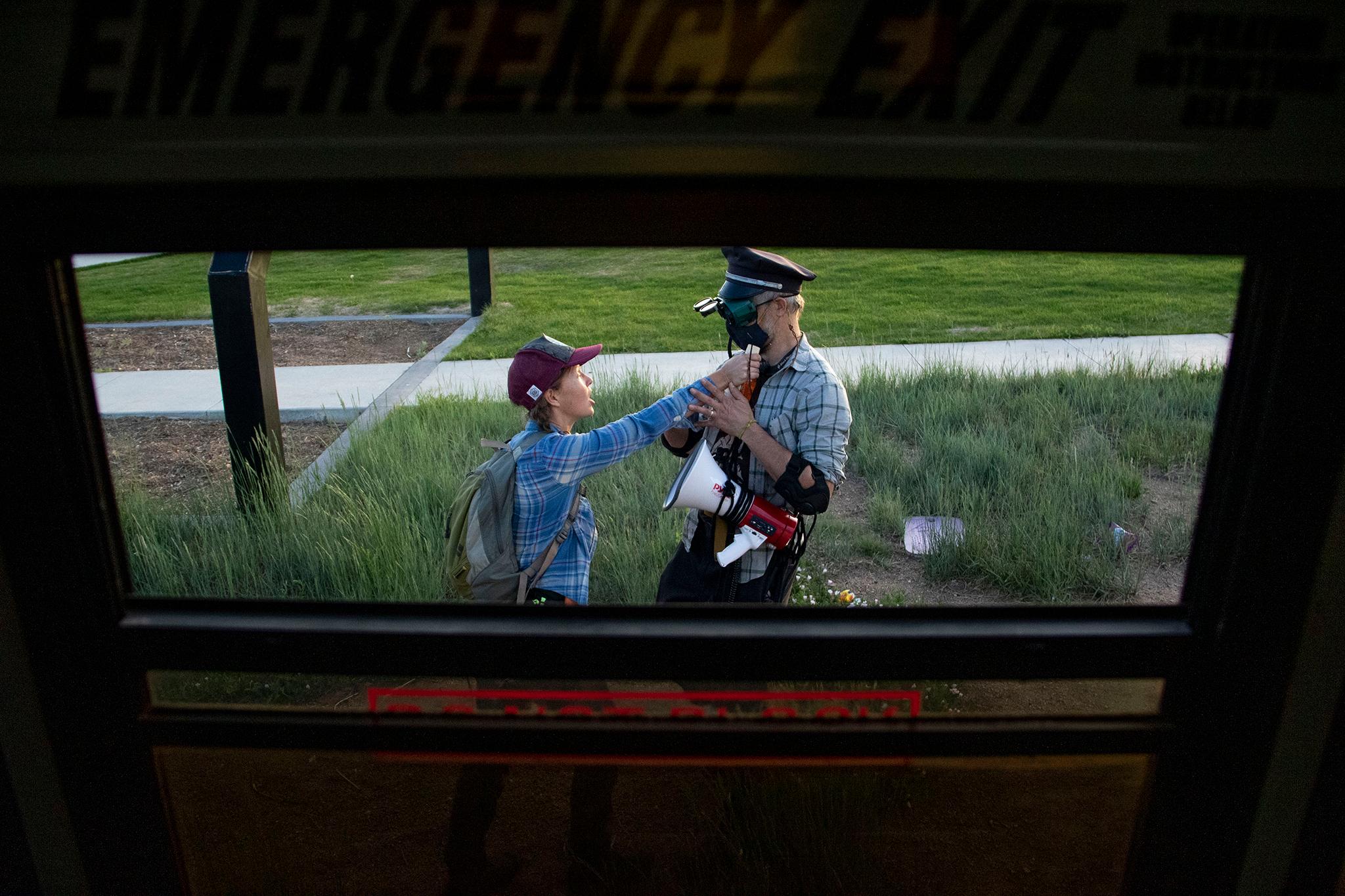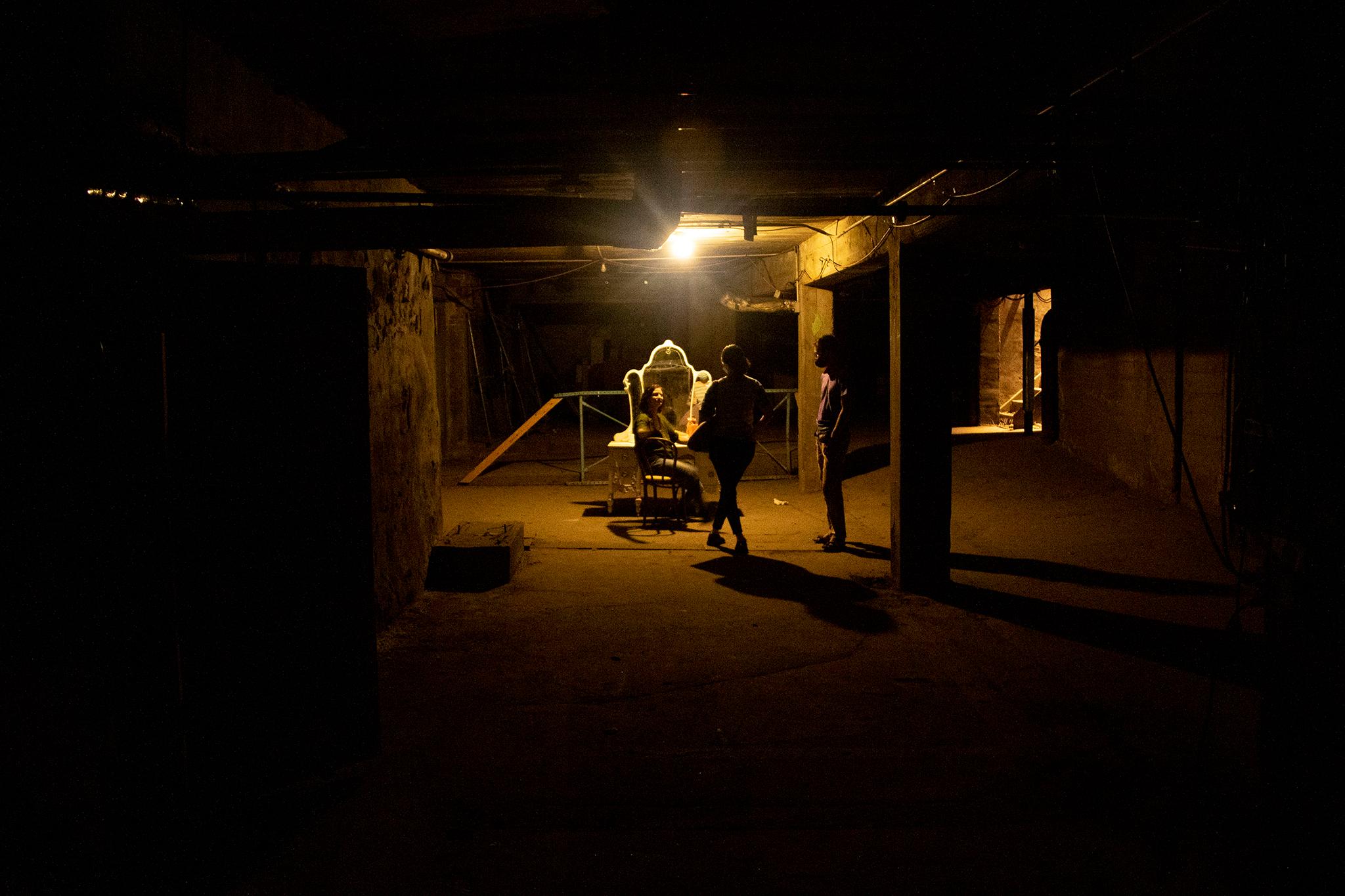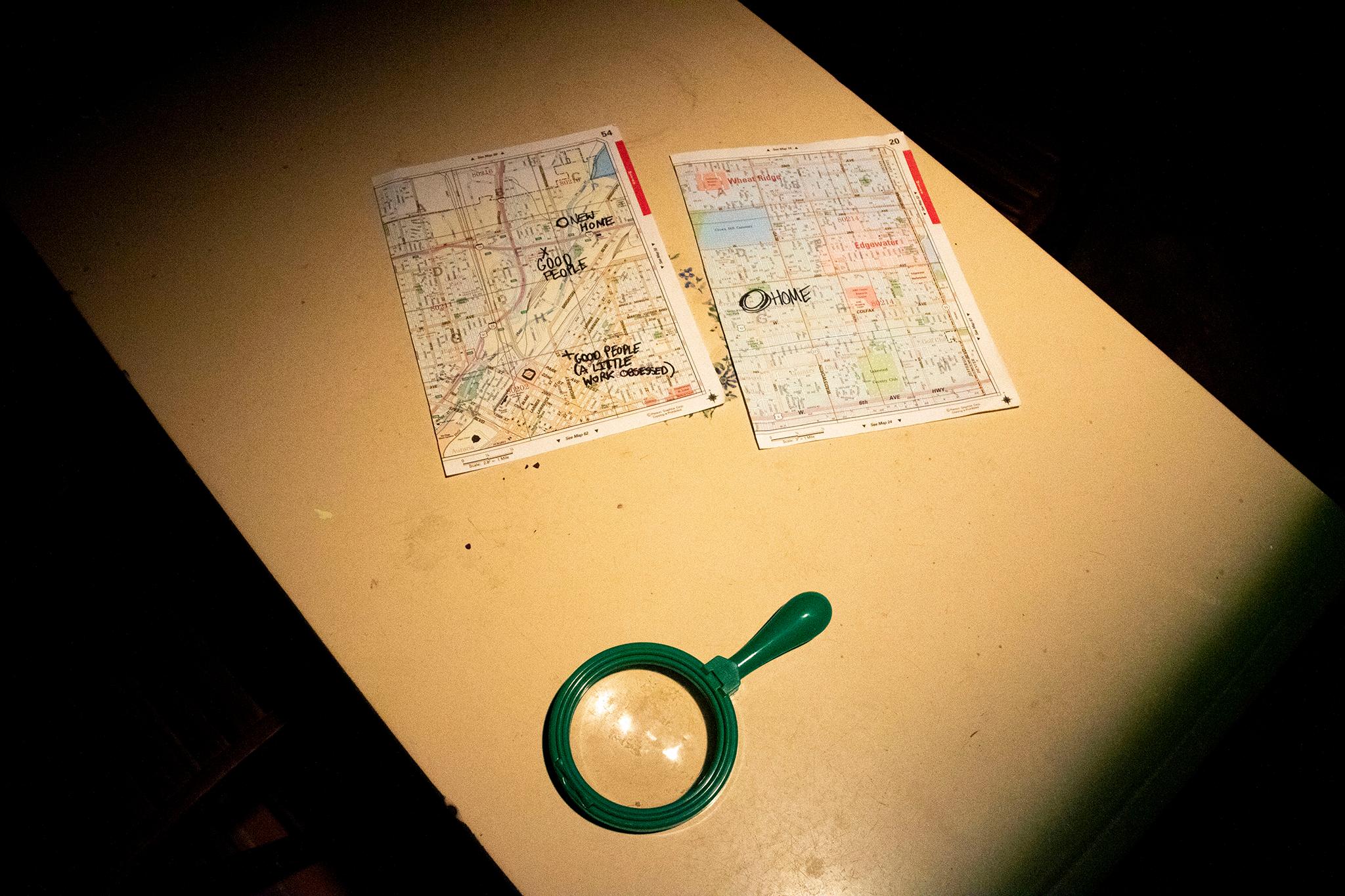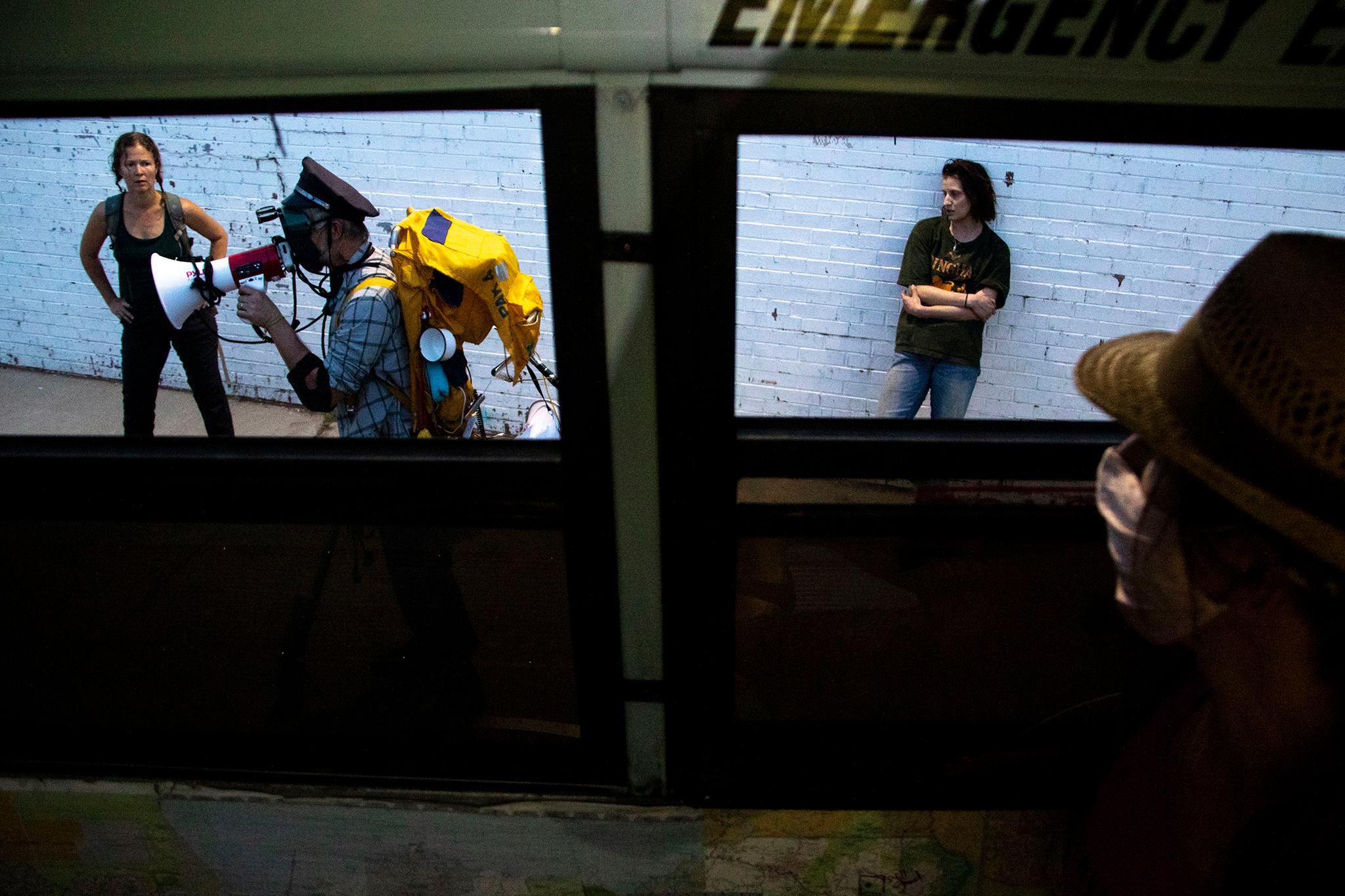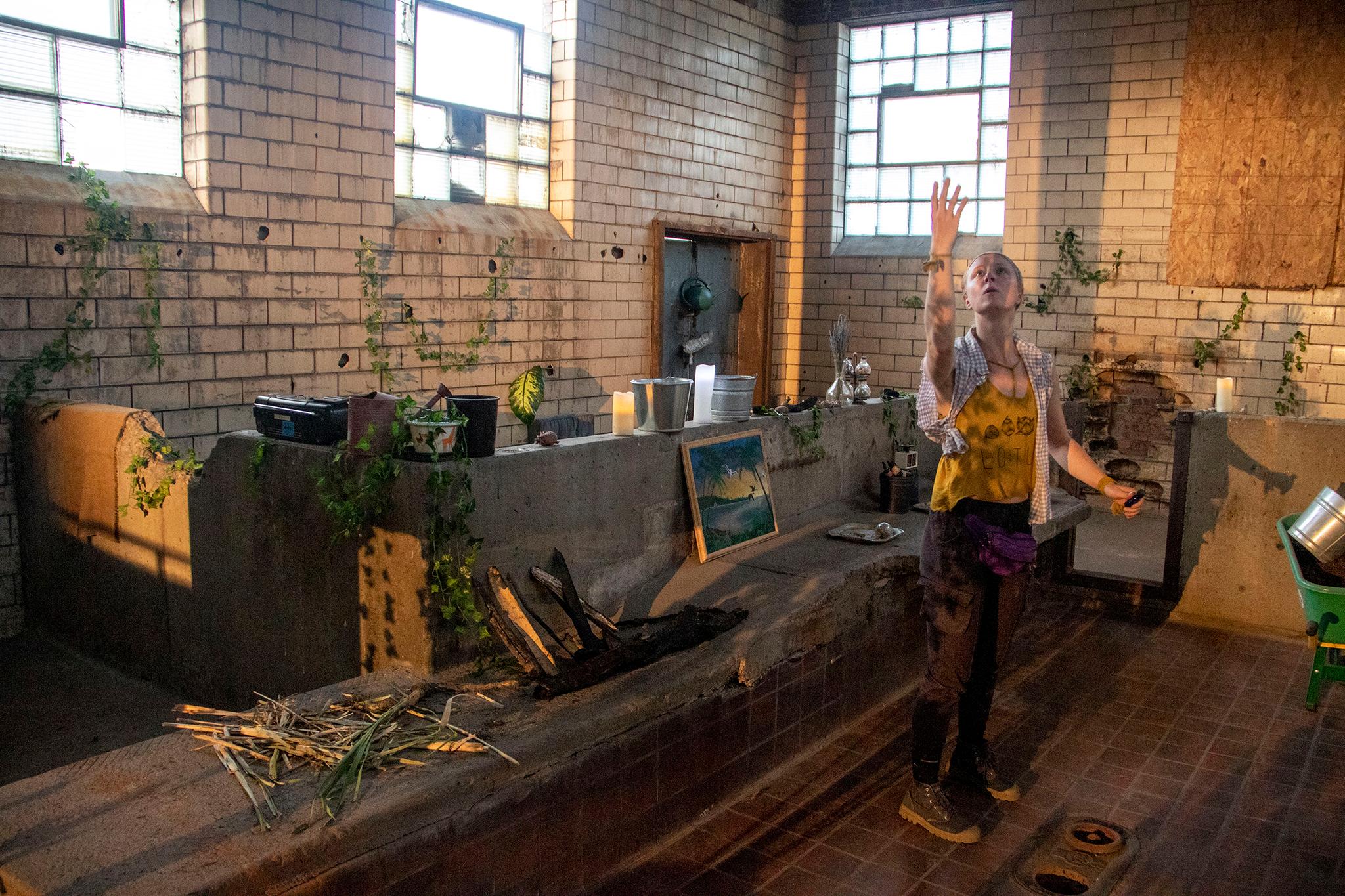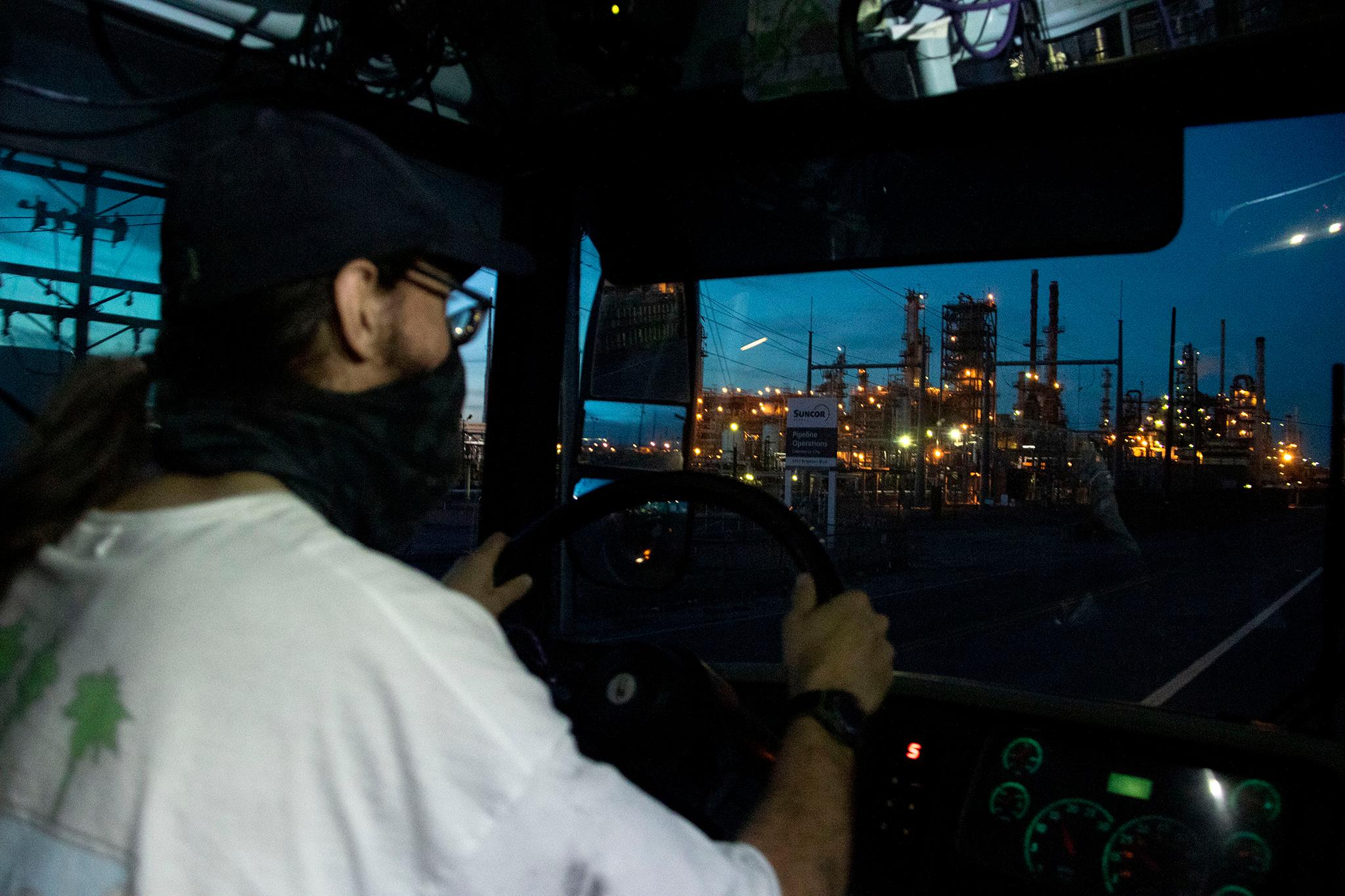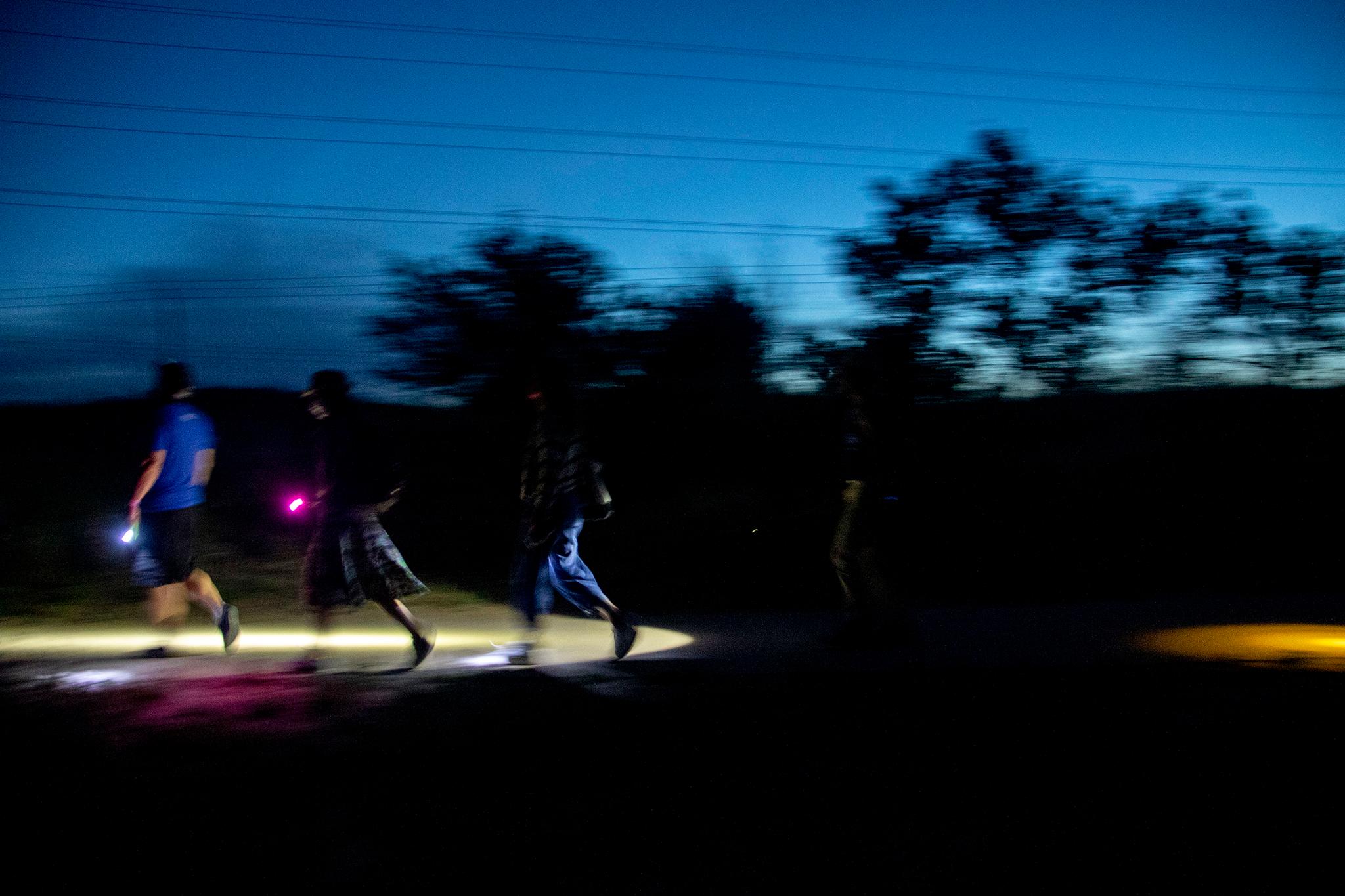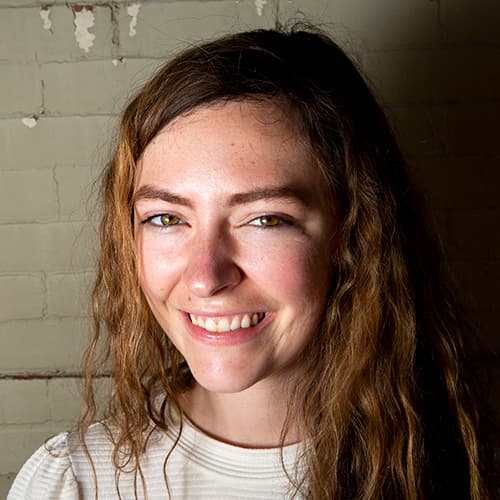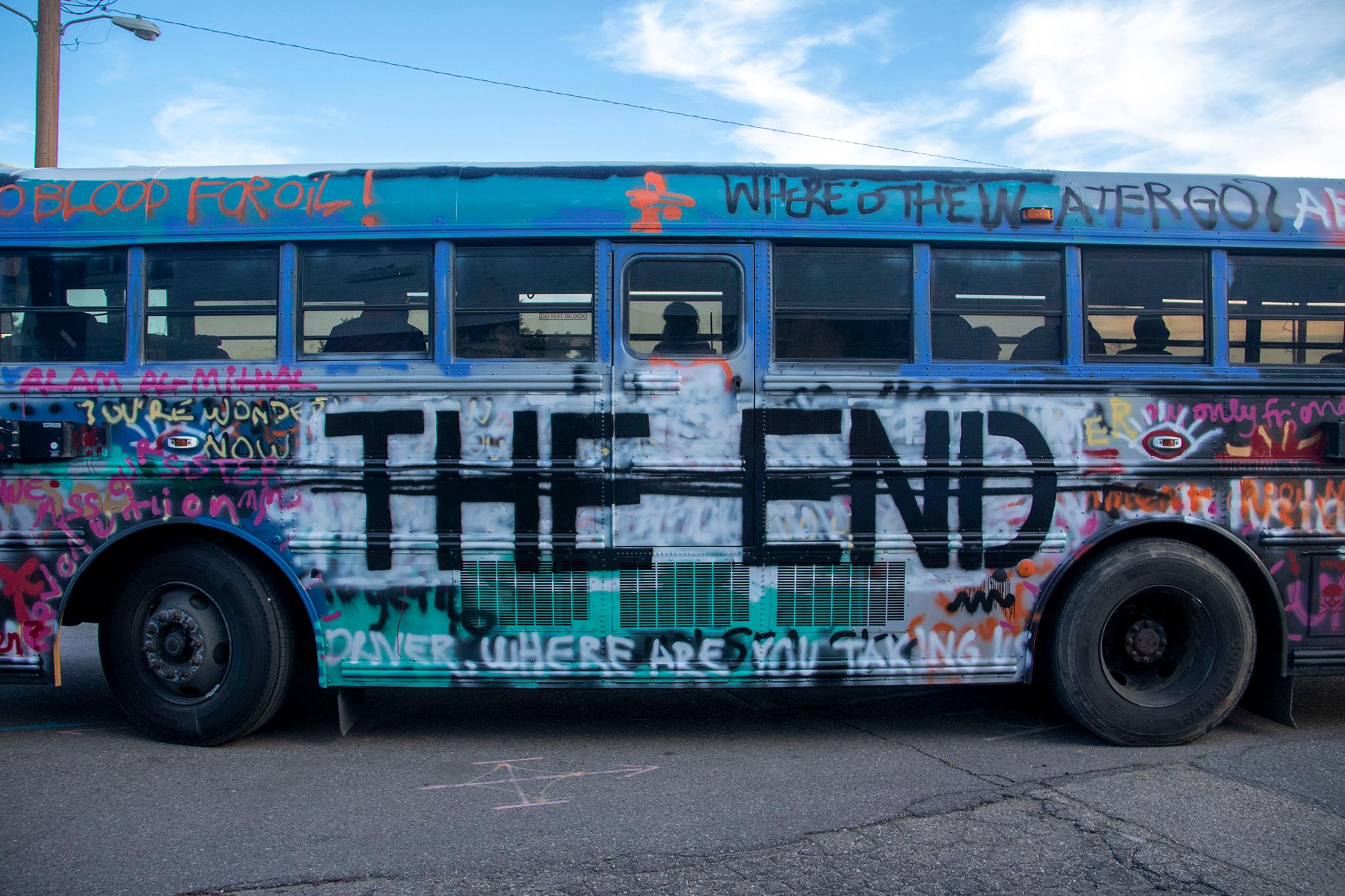On Thursday evening, a group of travelers boarded a school bus completely painted over with graffitied messages that said things like "where'd the water go" "revolution" and "driver, where are you taking us," all wrapped around bold, black letters spelling out "THE END."
The usual rows of bus seats have been removed to leave the center open. Wooden benches lined the walls, and a web of ropes hung from the ceiling to function as makeshift handholds.
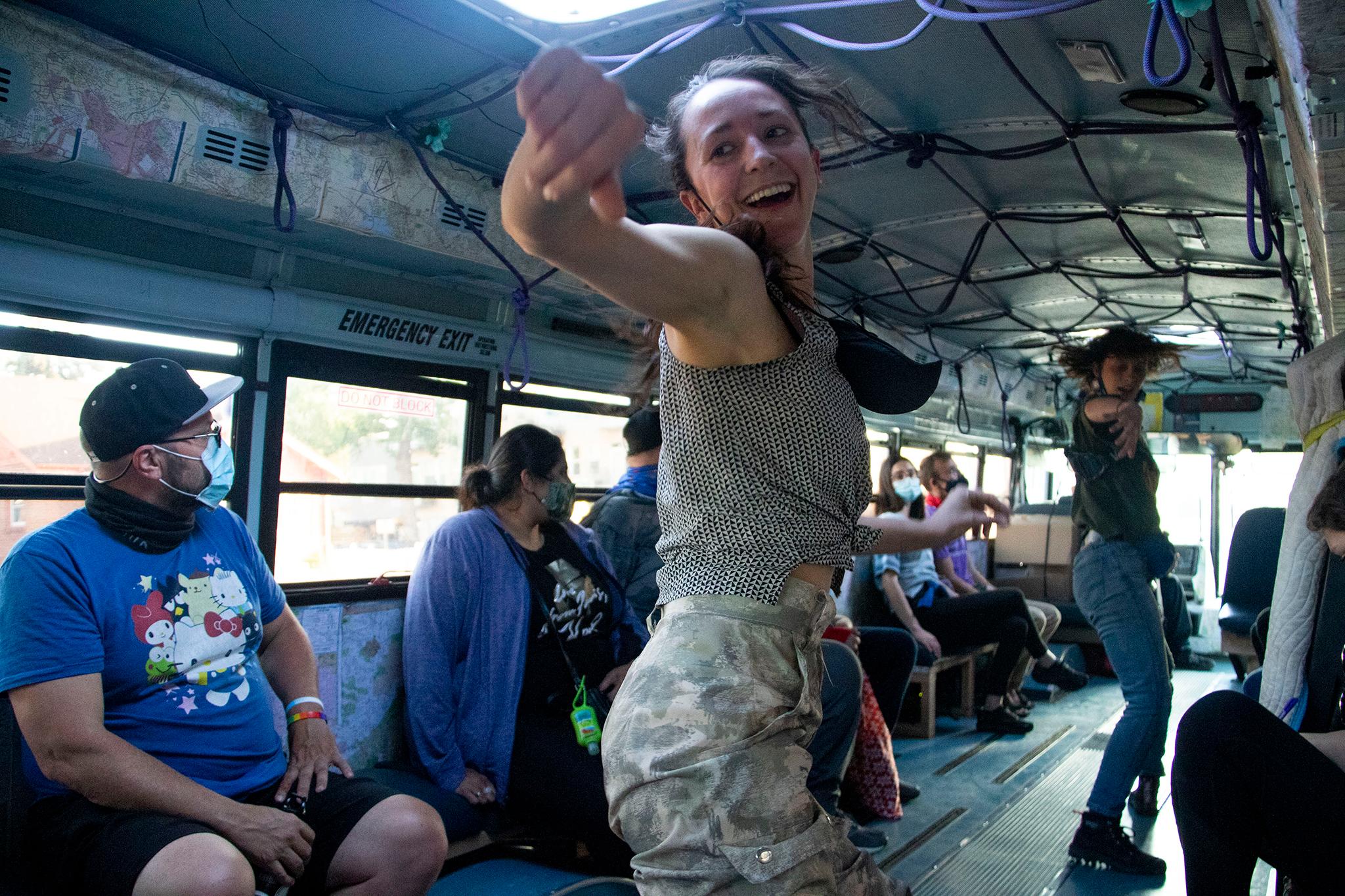
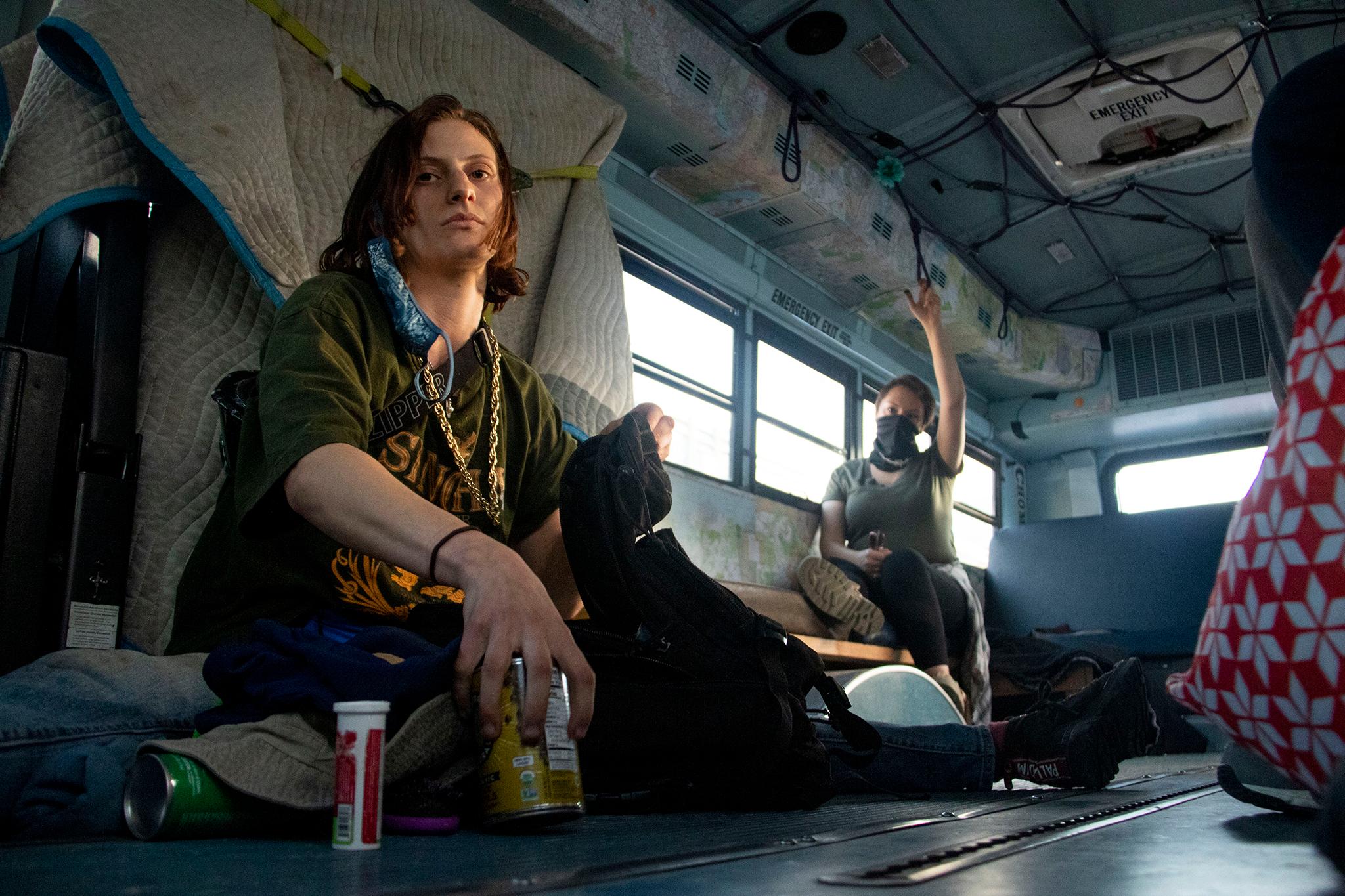
As the journey began, the guide said: "The apocalypse isn't for the faint of heart," instructing passengers to remain seated, keep their hands to themselves, and only speak when the guides spoke to them. Talking Heads' "(Nothing But) Flowers" blared over the speakers.
"Welcome you all, and congratulations," the guide announced. "You're here because you had the foresight to realize what's coming. We are on the precipice of great change. And it takes bravery and fortitude to embrace that change and face what lies ahead."
We were headed to the Refuge. This is The End.
Created by immersive theatre company Control Group Productions, THE END: A Bus Tour of Denver's Climate Future is an interactive mobile theatre production that takes guests on a journey through a climate apocalypse.
The show's narrative plays out as audiences ride the renovated school bus through Denver and Commerce City. The hope is that immersion might make the realities of climate change feel more real and immediate.
"The bus is a place where we can sort of hold the container of the imagined world and tie it through to what we are taking into our eyes through the windows, through our nose as you drive," director Patrick Mueller said. "That structure just seemed really amazing and ideal to bridge this uncomfortably near future and present moment that's already revealing the path that leads to that future."
The 16-mile route takes audiences through parts of metro Denver already bearing the effects of environmental degradation and climate change, allowing audiences to better understand how climate change might impact their lives and how it already is impacting others'. Mueller said that while data and information around climate change is already out there, Control Group Productions felt something more was needed to engage people in the issue -- and to spark action.
"I believe that it is a little bit around storytelling, but really it's around feeling it from the outside, in," he said. "Immersive work takes you inside the story. You don't just witness it through the screen or the proscenium arch. You're part of it. You're one of the characters in it."
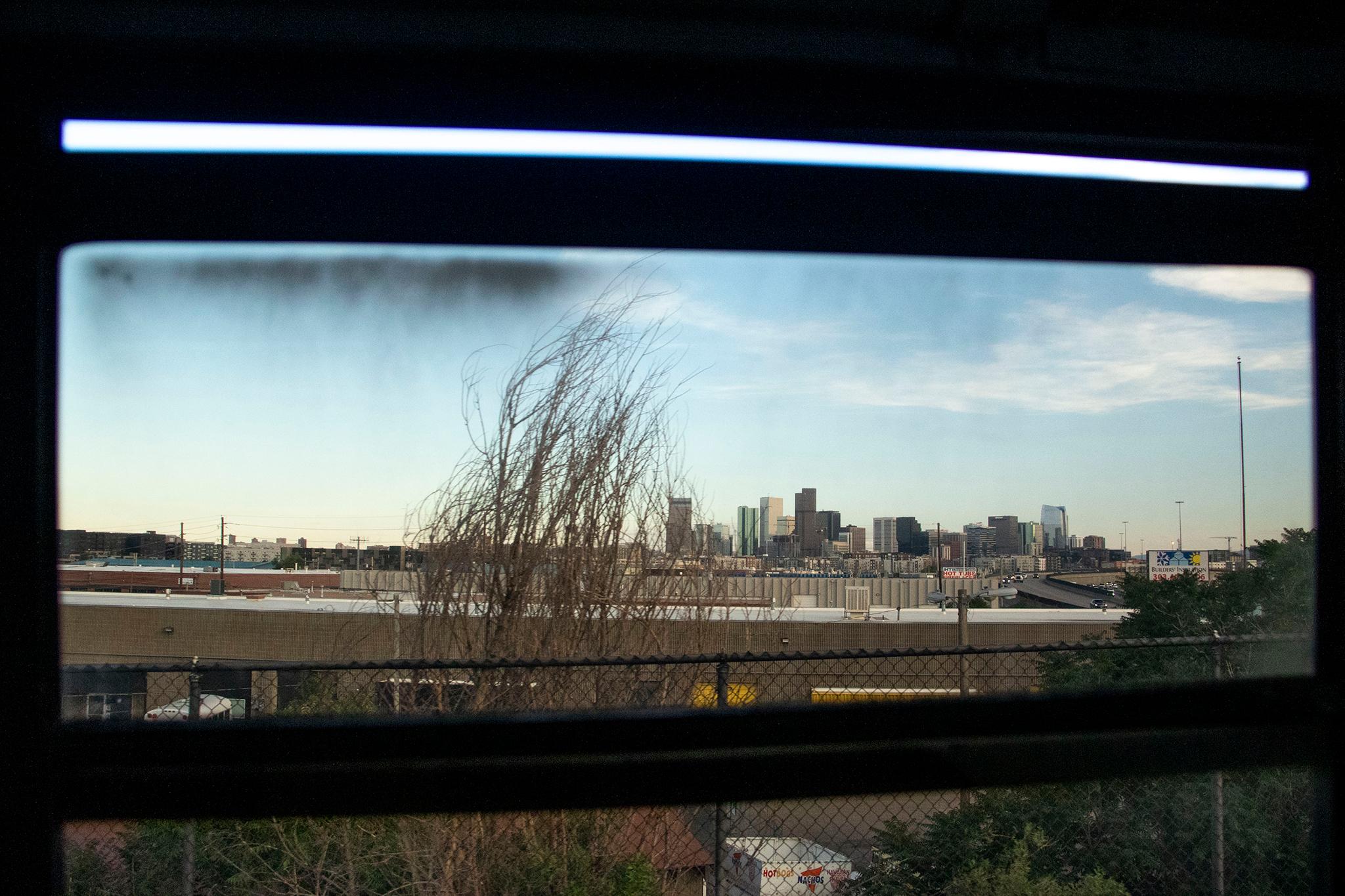
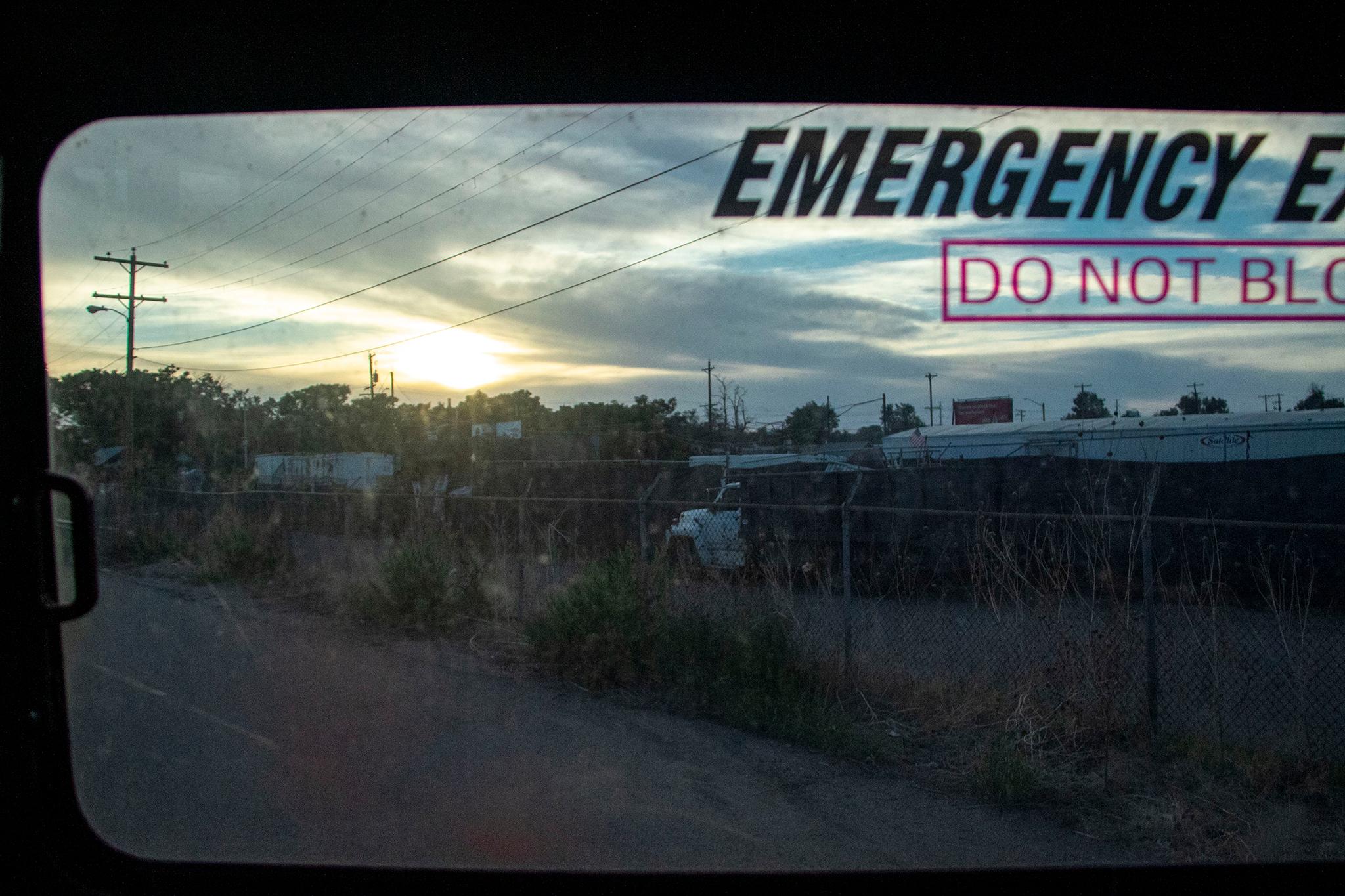
Before the pandemic, the company bought a bus and began mapping out plans for a tour of the apocalypse.
The vision was somewhat punk rock and a little lighter than how it looks now. Mueller said early scripts featured a cyborg character and a flock of drones.
"The first version that we started working on, in 2019, was really about the human experience of the brink of apocalypse," Mueller said. "And helping people sit with watching the situation deteriorate and then trying to offer a bit of insight into, this is how it might look and feel right before a cliff opens up underneath our feet."
Then, an actual quasi-apocalyptic event hit in 2020, and Control Group's plans for the tour were postponed. During that time, the world experienced other tragedies, including economic challenges, supply chain issues, housing inequality, racial violence, war, as well as climate crises like drought and forest fires.
"It really did feel like this intersectional calamity. You know, sort of teetering on the brink," Mueller said.
As the pandemic improved and the group considered new plans for the bus tour, they decided to shift focus a bit. Mueller said that because the world has experienced so many events that feel apocalyptic, the current version of the show is less revelatory and more reflective, almost like a "therapy session."
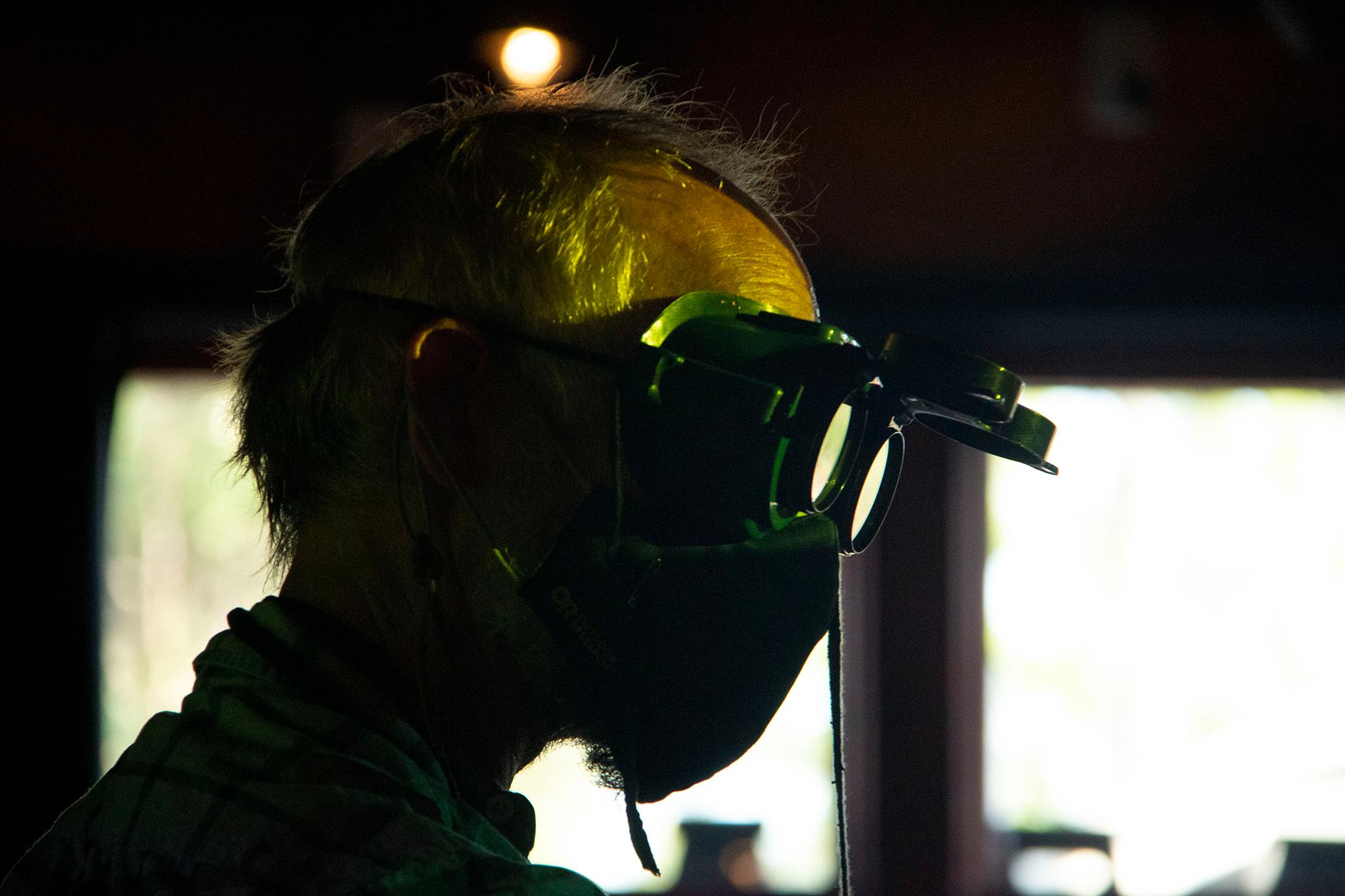
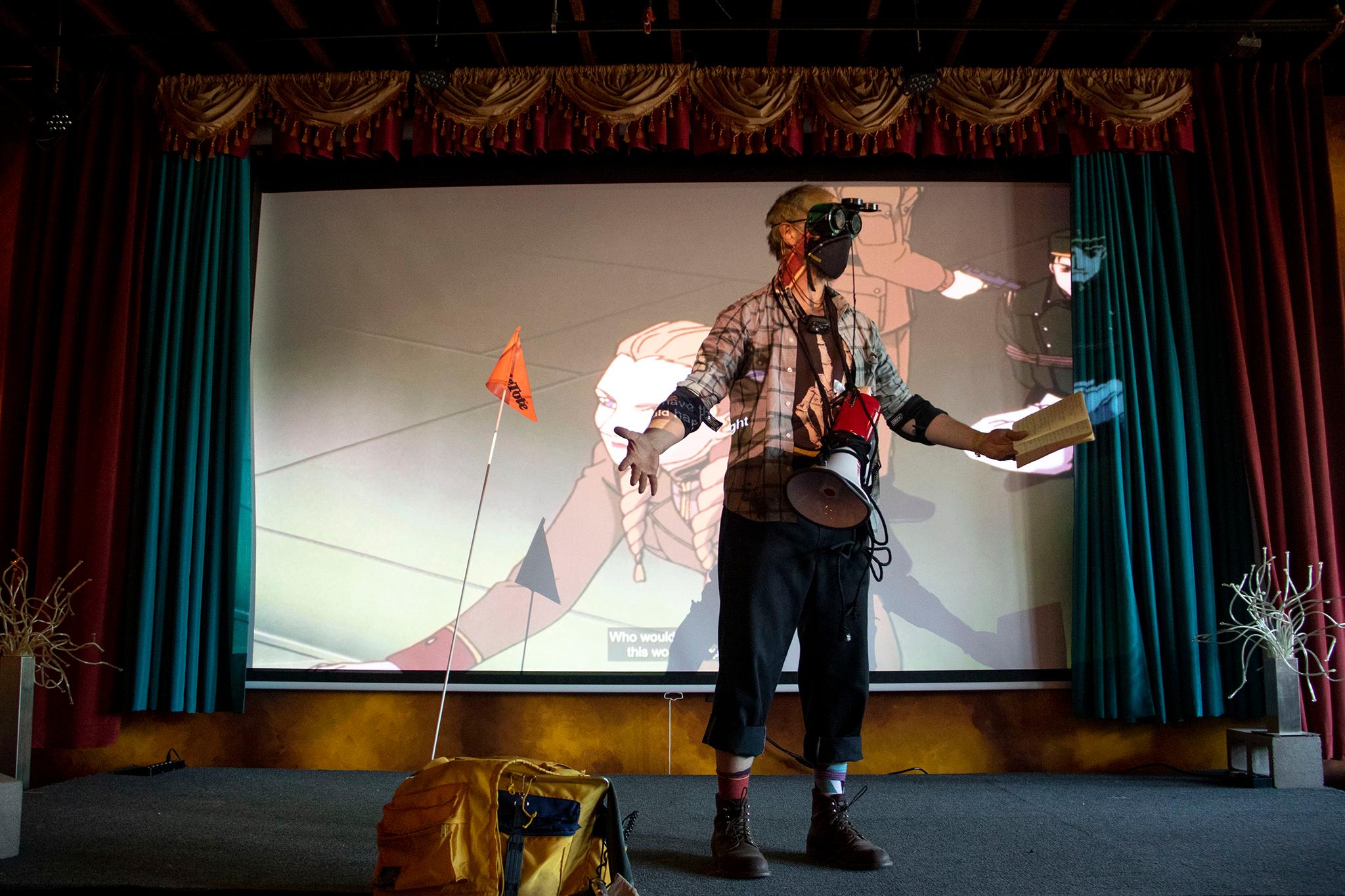
"We've gotten really serious and contemplative," he said. "There is certainly still a strong fun factor. Getting on a school bus that is designed to travel to the end of the world, I think, still has a lot of joy."
The show was supposed to premiere in the first week of June. Then, right before the planned opening, a cast member got COVID. They had to postpone performances and navigate new logistical challenges. They have a double cast, so they were prepared. But Mueller said he found irony in the idea that their show about a worst-case scenario has been repeatedly interrupted by quasi-apocalyptic events.
"You spend all your time thinking about the apocalypse, and the apocalypse finds you," he said.
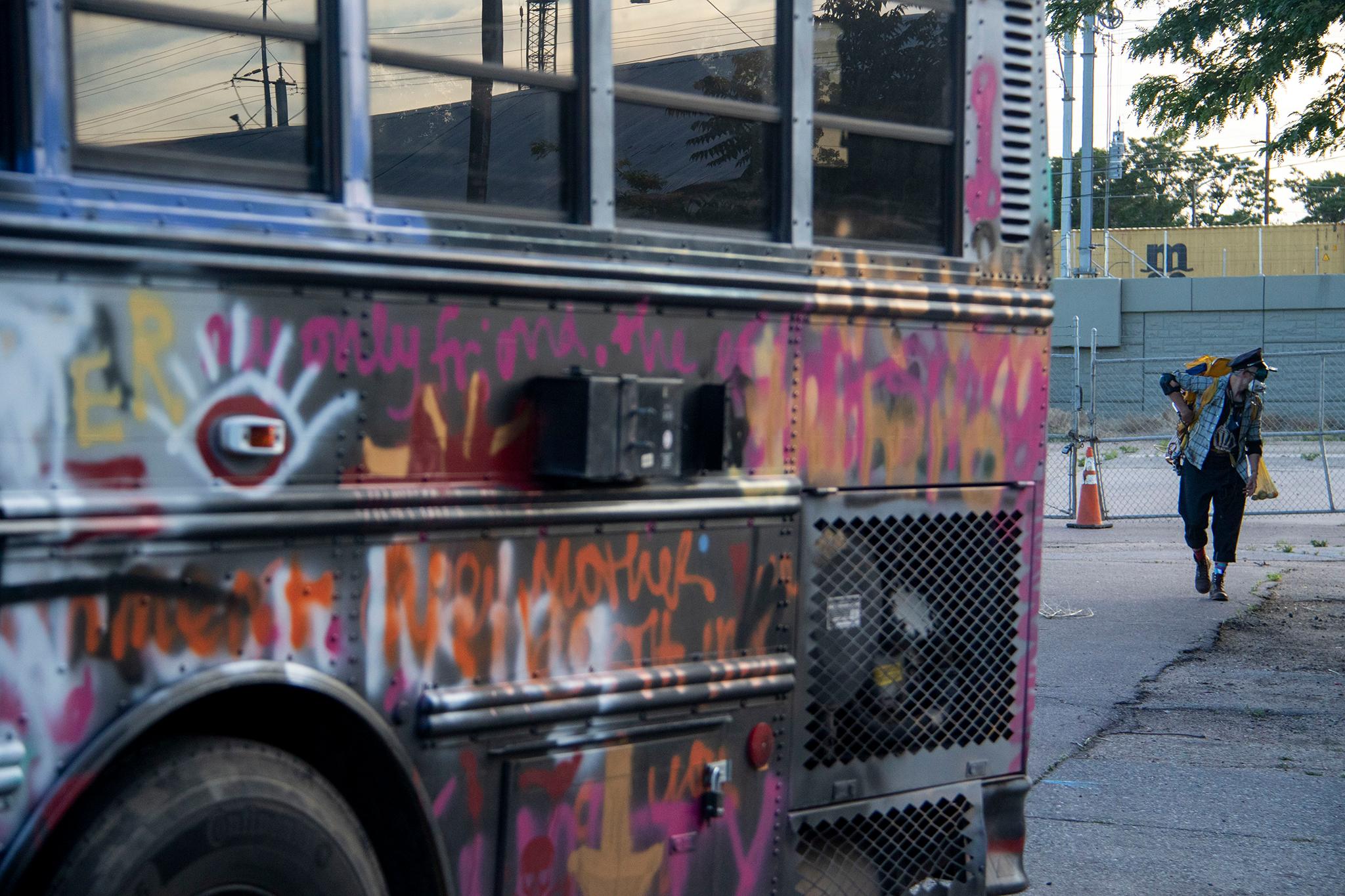
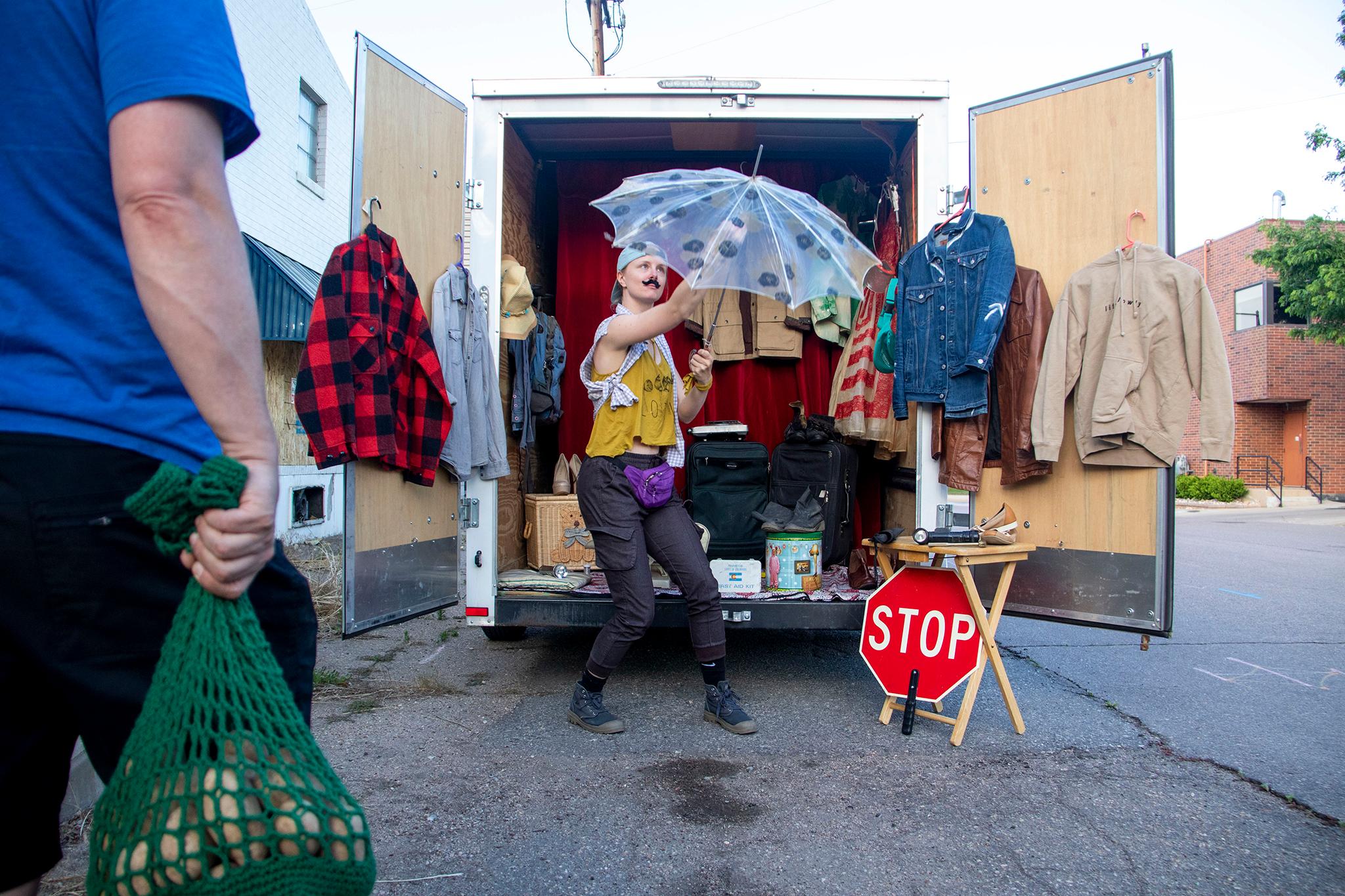
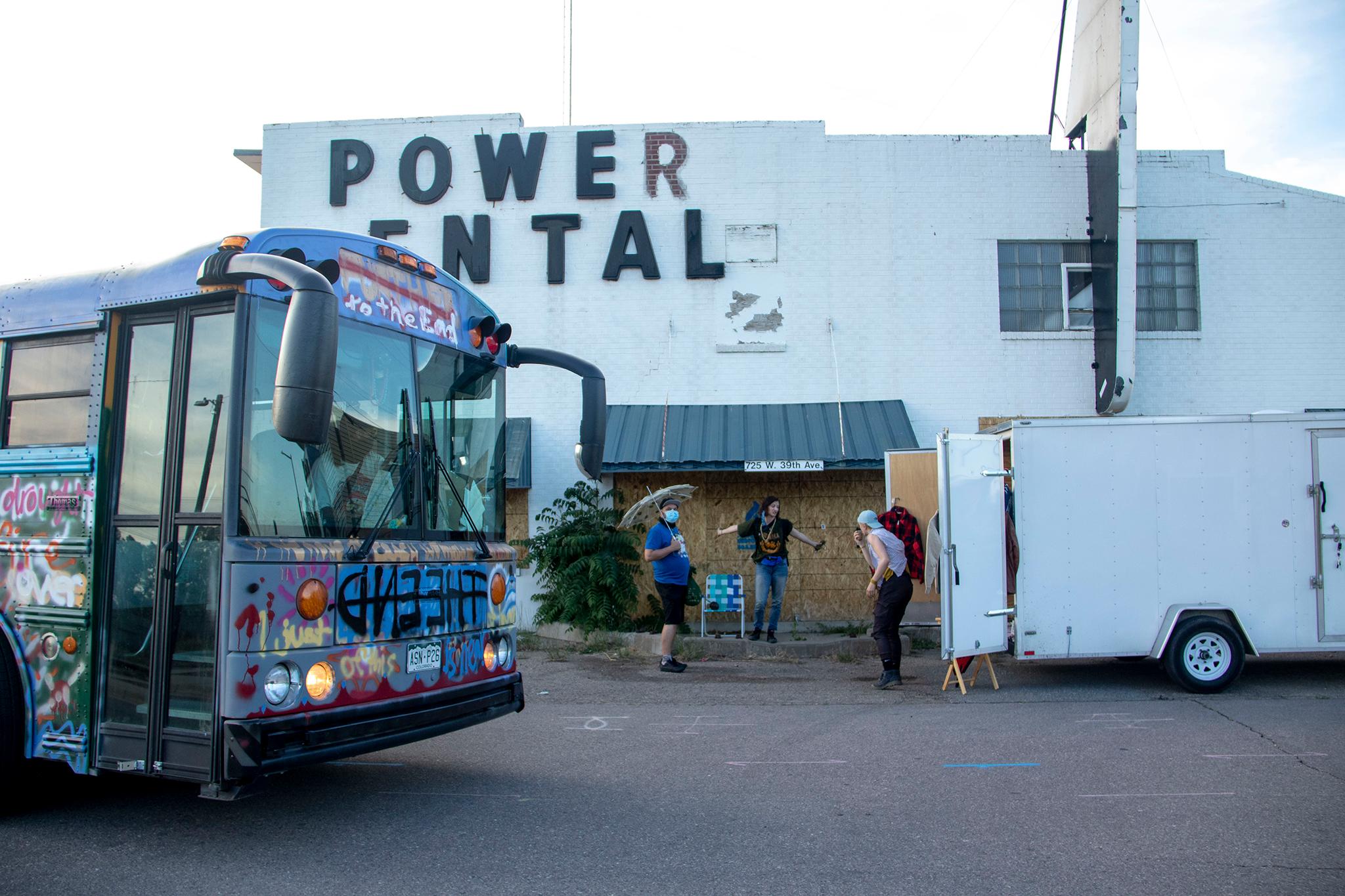
The story presented by THE END is set in a not-so-distant future in which Denver, and the broader world, has been decimated by drought and extreme weather.
The bus ride ends at "the Refuge," a place shrouded in mystery that guides allege will keep you safe from an event referred to as "the Cliff."
You're instructed to bring a bag equipped with gear you might need in an apocalyptic scenario and to fill out a from outlining what survival skills you can offer the group and why you want to go to the Refuge. You meet your guides at a Denver-area location, which changes from week to week to improve geographic accessibility.
The first immersive scene plays out as you check in, enfolding you into this imagined world, and you're ushered onto the group's biofueled bus. The journey begins, and you're gradually introduced to the story's characters, each of whom has a distinct backstory that informs their approach to survival.
"It's been pretty easy to hone in on a set of characters who represent different viewpoints that we've all witnessed or taken on over the last couple of years," Mueller said. "Of anywhere from, the toeing the line and following all the rules, to just trying to get by, to like, 'F*** it. Let's blow it all up.'"
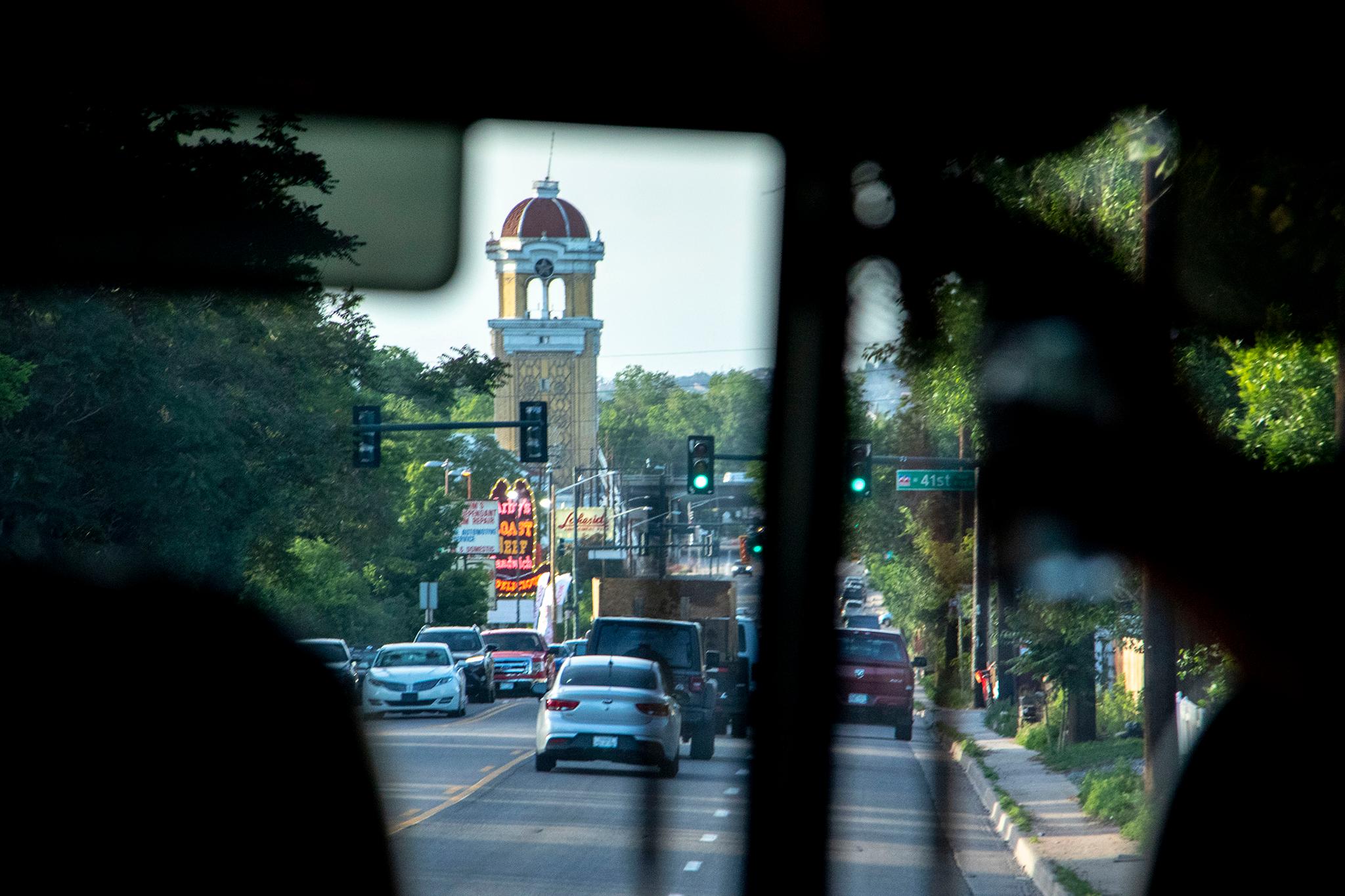
At the start of the ride, the feeling of immersion is created primarily through interactions with the characters, who engage audience members in conversation, asking questions and telling stories that give insight into their own experiences of this world. The bus also plays a soundtrack created by Playground Ensemble that incorporates apocalypse-themed music, as well as an "emergency broadcast" sharing public safety announcements that echo our own experiences of the last two years (mentions of shelter in place, curfews, displaced families, respiratory concerns, emergency relocation).
Over time, as the bus takes you into Globeville Elyria-Swansea and Commerce City, areas with high rates of pollution, the environment begins to influence the audience's experience of the story. You see browned fields and drive through SunCor Energy's oil refinery, a major pollutant that has committed repeated air quality violations.
"We're offering a narrative. There's the story that you can latch on to, and then there's also a bunch of sensory information," Mueller said. "There's vegan food that we could imagine growing ourselves in this area, based on collected rainwater. There's the smell - just the stench of the petroleum refining at SunCor as we drive through there."
Throughout the ride, your group has to make a few stops to gather resources -- filtered water, food -- to learn what it might take to survive in a post-apocalyptic world. You stop to aid a refugee. Meanwhile, another character, a kind of pseudo-law enforcement officer, tails the bus, his looming presence simulating a feeling of danger and precarity as the world speeds toward climate disaster.
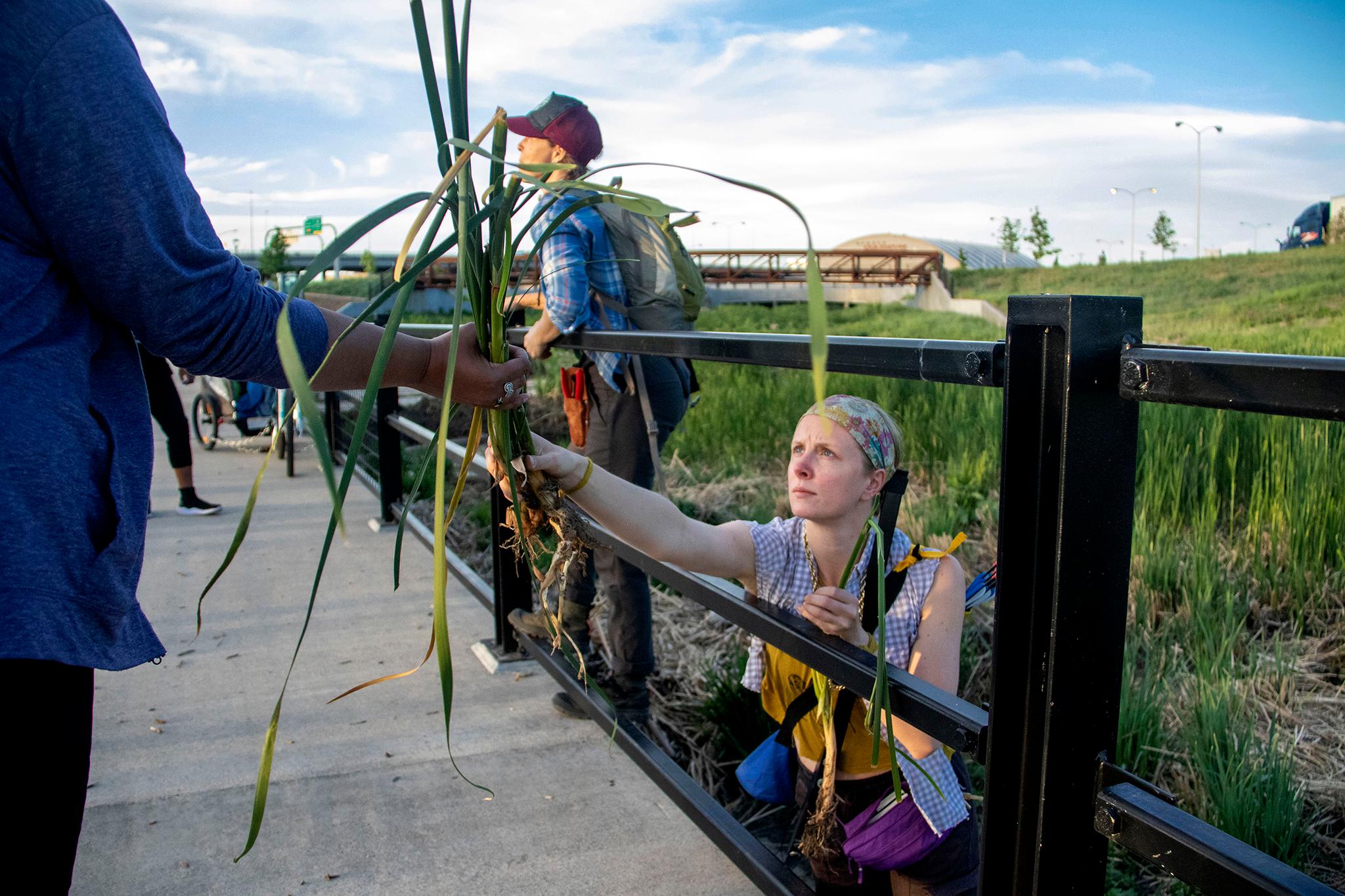
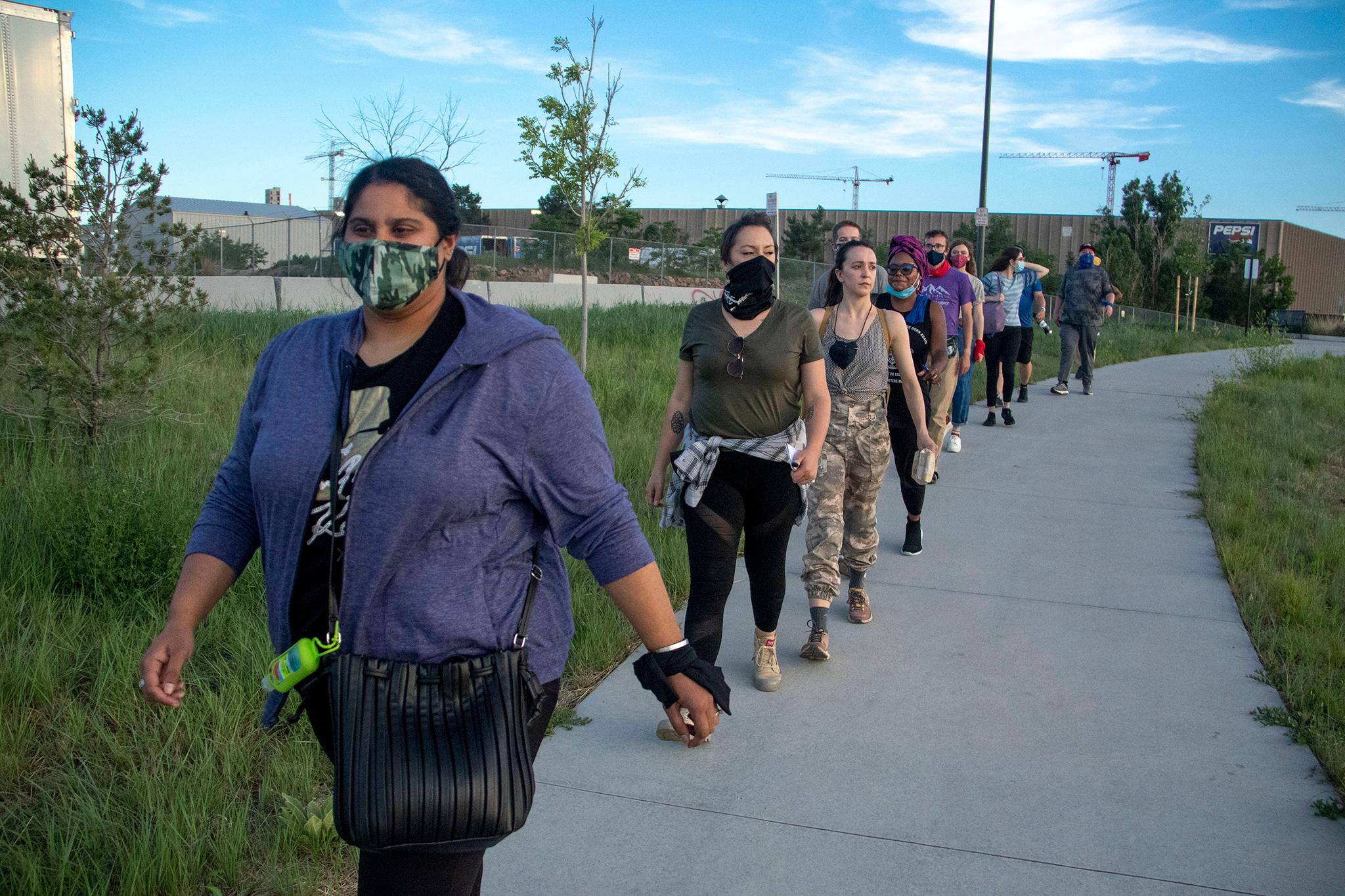
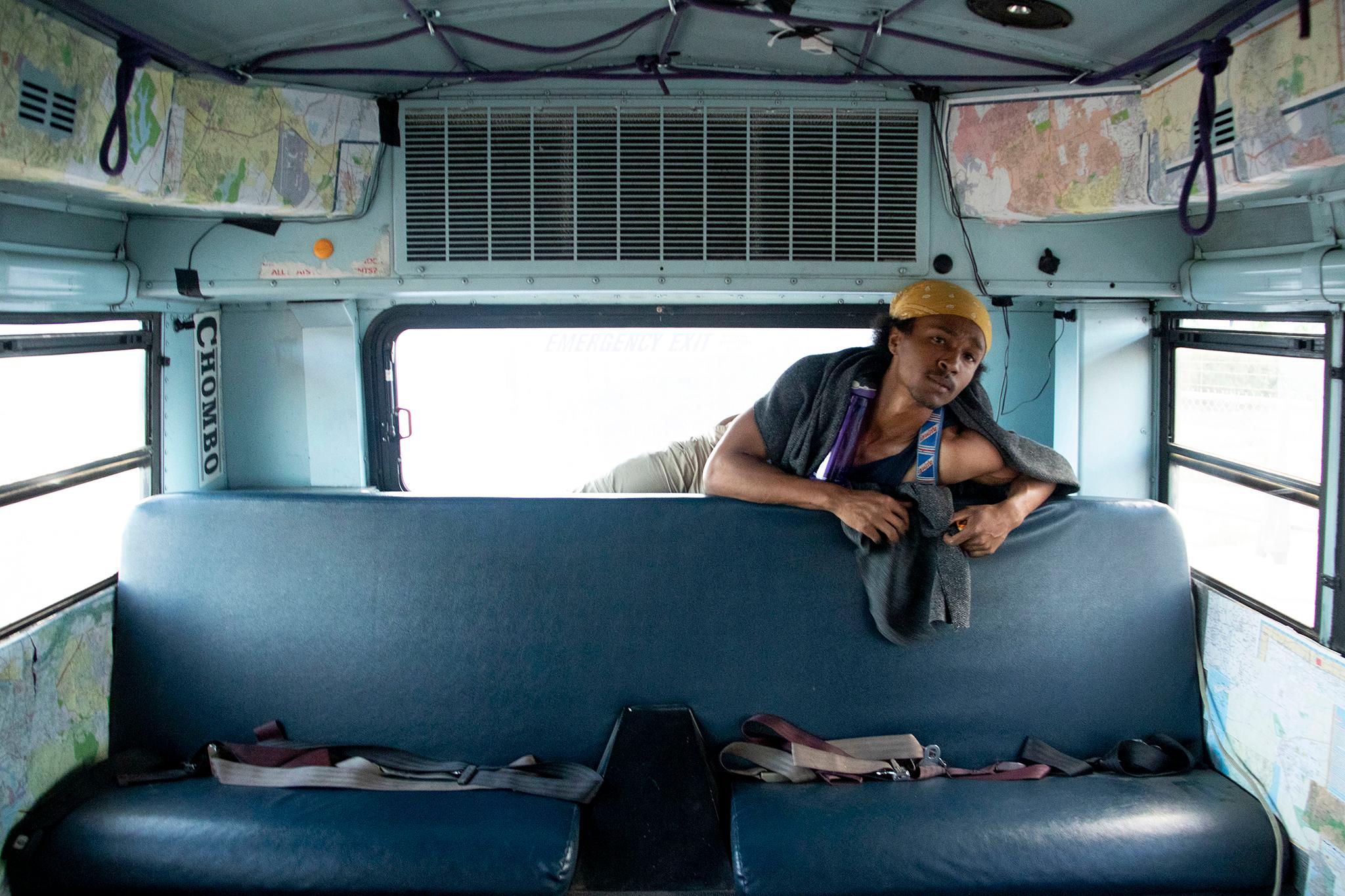
Mid-show, the bus stops at a safehouse (in reality, a decommissioned slaughterhouse). It's a moment of respite. The space is outfitted with seemingly scavenged furniture and supplies. Messages scribbled on the walls indicate the purpose of each room or chamber ("bunk house," "water filter," "garden," "do not enter"). While there, you're pulled into mini-stories, where you interact with the characters and learn more about their experiences in this imagined reality. Finally, you sit down to a enjoy a small plate of vegan food, plus an optional shot of gin.
Things start to fall apart as characters clash with one another. They debate over survival decisions, whether the Refuge is a scam, about the value in holding onto hope, about good and evil, about whether telling stories can really make an impact. As you leave the safe house and get back on the bus to reach Refuge, it begins to feel like the bus is hurtling toward disaster. By the show's conclusion, guests are invited to share a moment of reflection.

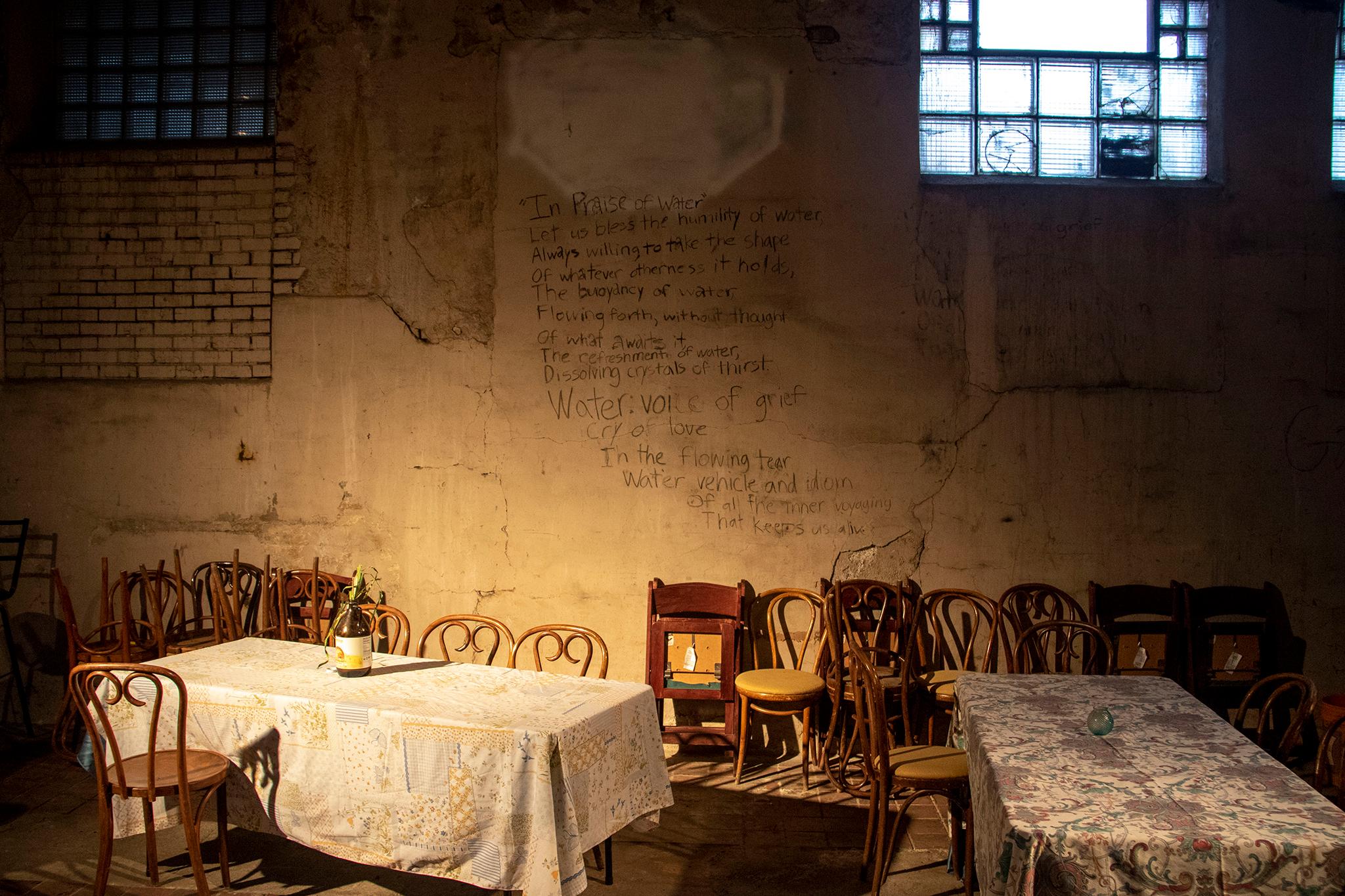
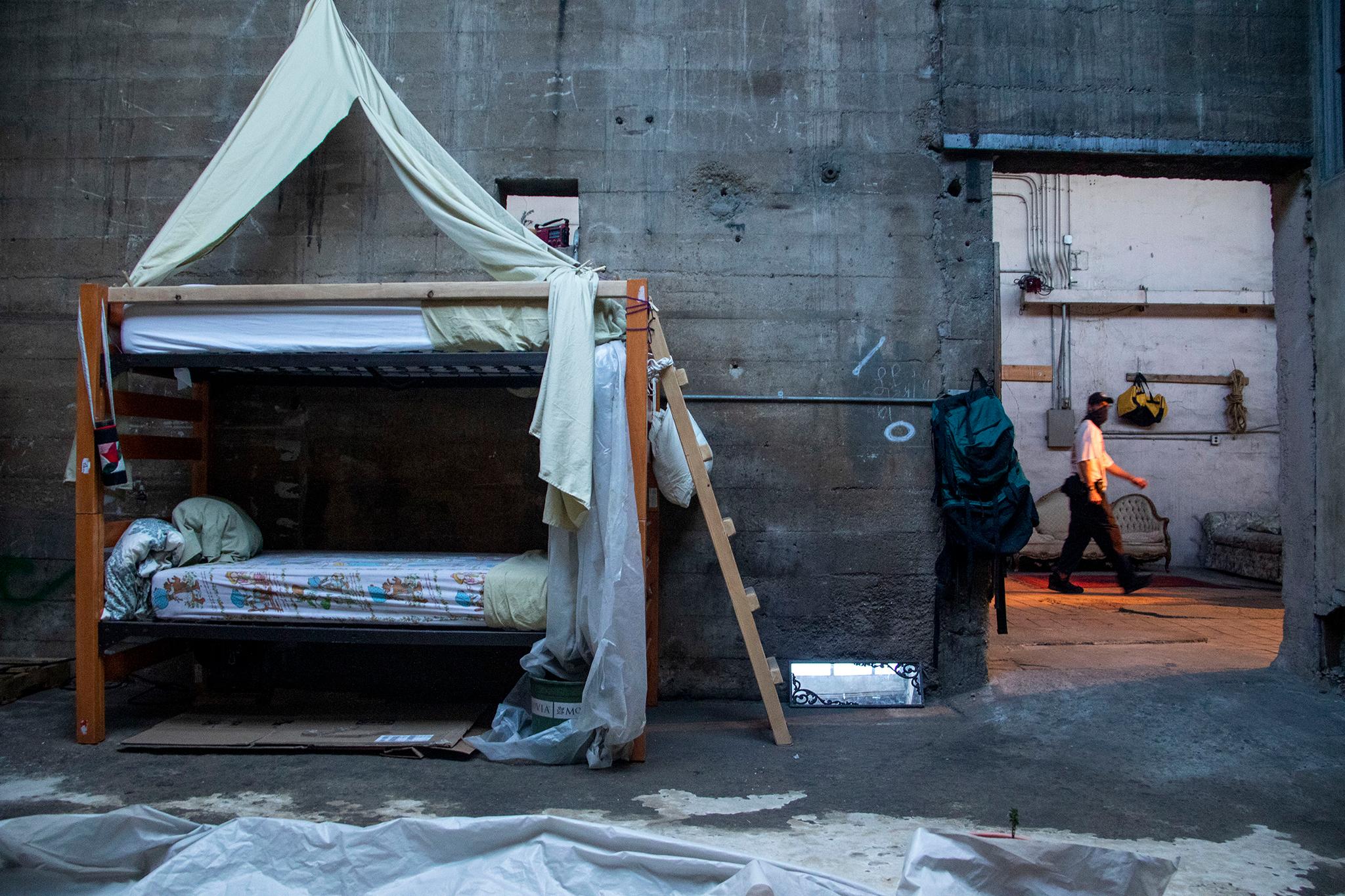
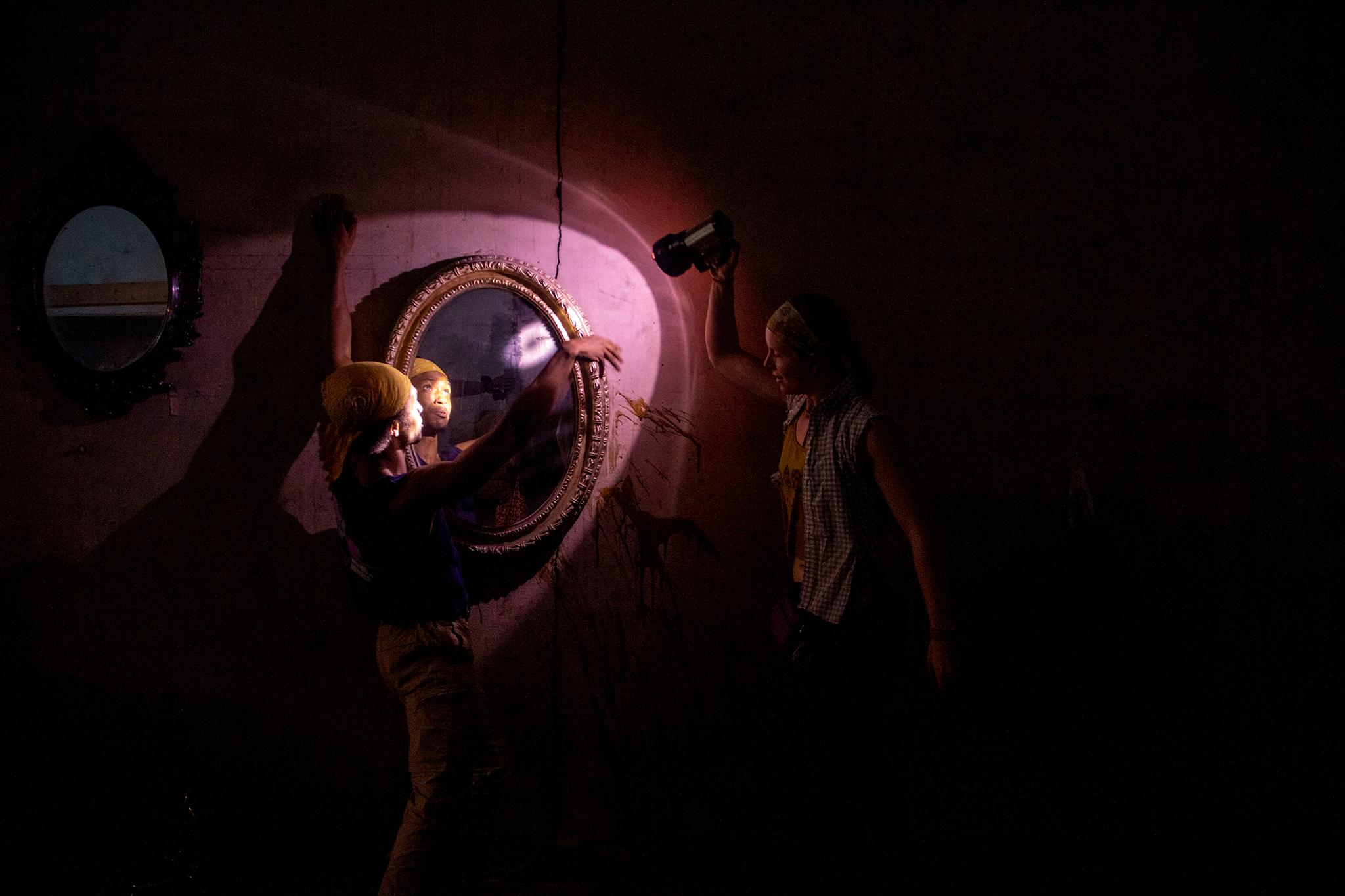
Throughout production planning, Control Group Productions partnered with organizations to understand the climate crisis, particularly how it's impacting Globeville Elyria-Swansea and Denver in general.
As part of the writing process, the group did a lot of academic reading and research online and worked with U.S. Geological Survey's Water Resources division, as well as with GES environmental justice groups and social activist organizations to better understand what environmental disaster means locally, and to build trust in the community.
Mueller said the point of bringing audiences to witness the environmental impacts on some of the more industrial belts around Denver is to demonstrate not only that a version of climate apocalypse is already here, but that this might soon be the reality city- and region-wide. As one characters says: "This is the end. But it doesn't end here."
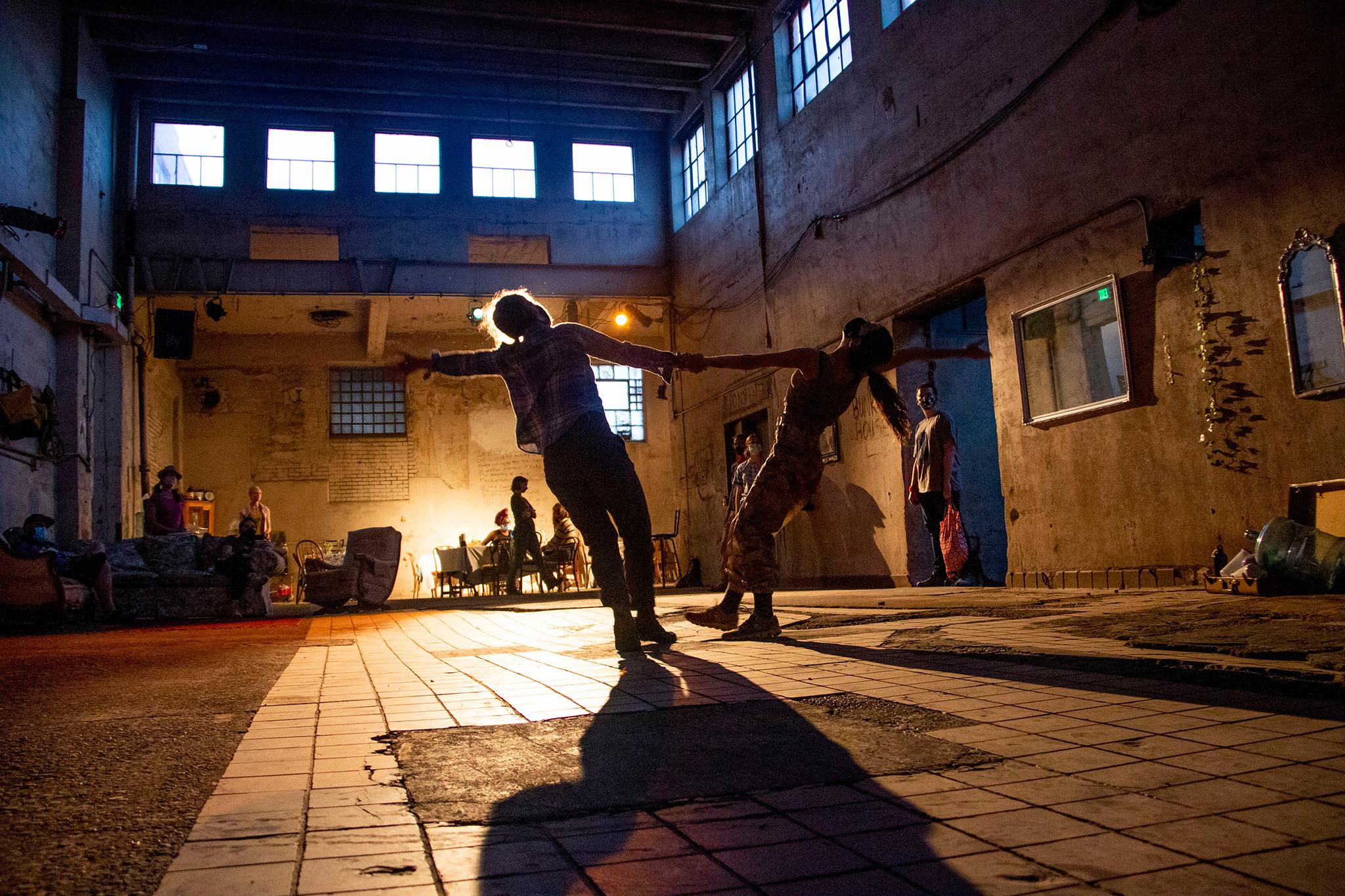
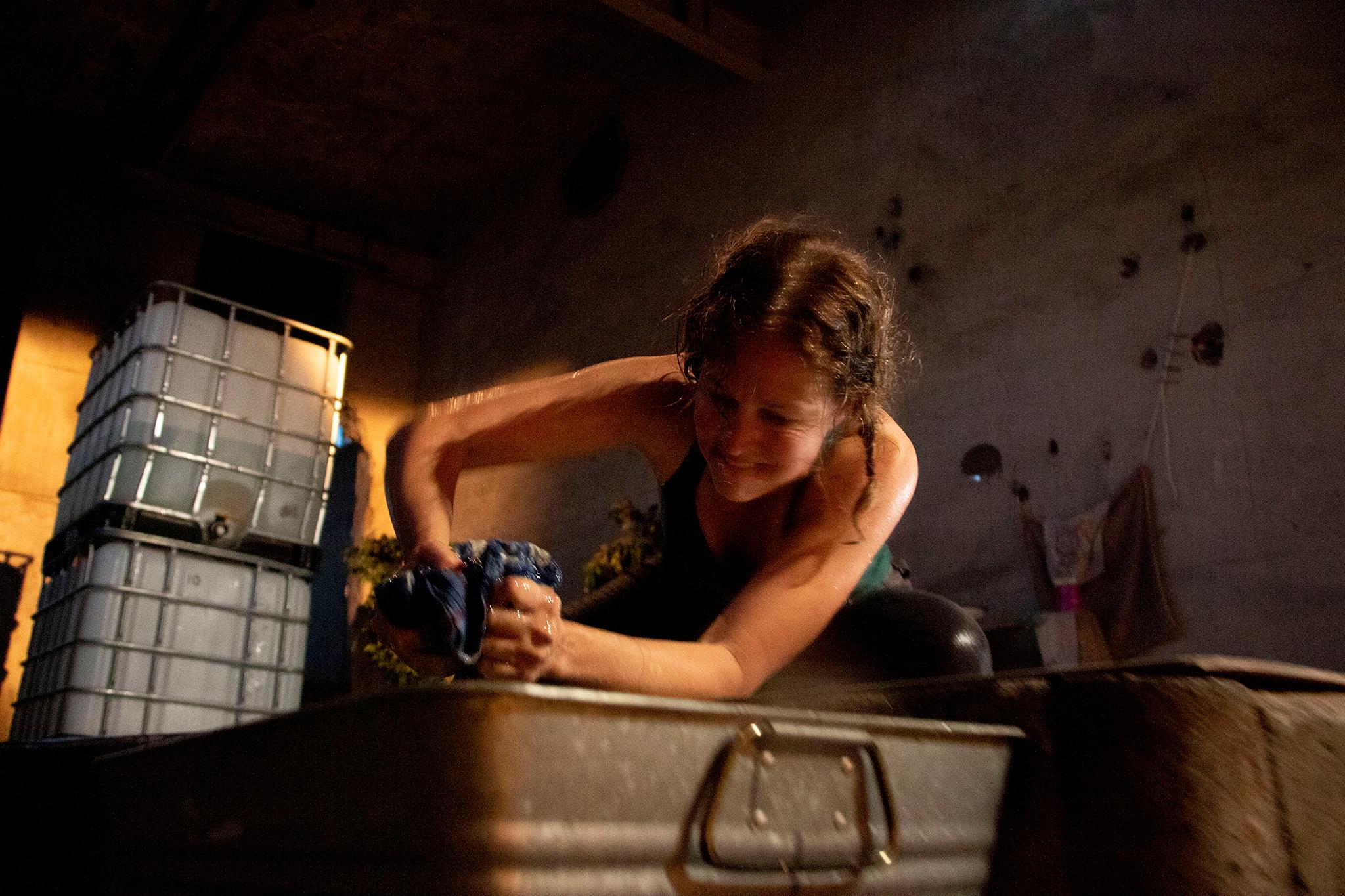
"The apocalypse is personal, and it's happening all the time, all around us," Mueller said. "It's not just helping those poor people over there; this is helping you not end up with the same air, quite frankly. By helping address the air pollution now in GES means that we don't have the brown cloud in the rest of Denver."
At the end of each show, during the bus ride back to the start location, THE END plans to welcome guest speakers to lead post-show conversations highlighting issues specific to GES and Commerce City, and what the people on the bus can do to help.
"The post-show conversations are focused very specifically on, here's an organization and a program that you can show up and volunteer at, you can give cash donations to, and you can advocate for by writing your legislators and elected officials," Mueller said.
But it's also about helping the people on the bus. Mueller said immersion can be a way to cope with some intense realities and move through them.
"The work that we most enjoy making in our company has a strong aspect of 'doula' work," Mueller said. "It's helping people sit with discomfort, pain, and a need for a transition, and to support them, to create an experience where they can sit with that and look it in the face productively and embrace the necessary change."
THE END: A Bus Tour of Denver's Climate Future runs through July 31. THE END will pick up guests at a different metro-area location every week, each of which can be reached by public transit. Tickets are $25 - $100. Wheelchair accessibility accommodations are available upon request.
